
- Mega Projects
- Thought Leaders
- White Papers

pm today straight to your inbox
The top pros and cons of travelling for business.
When you run a business or you work within a business that operates internationally, chances are you’ll have to travel within your role every now and again. Whether this is to meet with clients, for networking opportunities or another reason, it can prove to be very beneficial to travel.
But there are downsides that come with business travel. Not only can it be a huge expense for the business, but it can have a direct effect on you or your employees. Therefore, it’s important that you weigh up the pros and cons that come with the prospect before taking the leap.
To get you on the right track, here are the top benefits and downsides of business travel:
Let’s start with the pros:
More Networking Opportunities
As aforementioned, networking opportunities are one of the biggest benefits that comes with international travel. Giving you and your employees the chance to attend a variety of trade shows and events, the business has a chance to expand.
Through these trade shows, you can connect with others within your industry as well as prospective clients and grow your brand . From meeting these people face to face, you’ll stand a higher likelihood of a strong connection – rather than trying to connect with them virtually.
To Meet with Prospective Clients
Another prominent benefit that comes with business travel is the chance to meet with your clients physically. Getting to see their premises and meet them in person, you’ll get a better idea of what they need from your business.
You can also use the opportunity to sell what you have to offer – rather than meeting with them via Skype or another virtual method, it shows a level of professionalism that your competitors might not offer.
It’s a Learning Experience
During a business trip, your employees could learn more about their job and come back from travelling with a new admiration for their role. Whether this is because they had the opportunity to meet with clients or others within the industry, or they attended a trade show/training, it’s a huge benefit that you can reap as a n employer. If you are required to travel abroad, it may even give you a chance to learn spanish , or any other language. Indeed if you are going to be travelling abroad a lot as part of your career, you may even become more fluent rather than just learning the basics.
Now, let’s explore the cons that come with business travel:
It Can Be Expensive
Unfortunately, business travel isn’t cheap. Costing the company thousands of pounds each year (or more depending on the number of employees that need to travel for work), it’s something that might not be in the budget for startups or smaller businesses.
Not only will you have to consider the price of the plane ticket, but the hotel room, amenities, food and drink, travelling around the area, etc.
If you’re concerned about spending more than necessary on a vehicle for business travel, it is worth reading this blog post on 6Forget Vw Transporter Kombi Lease: 10 Reasons Why You No Longer Need It , which helps to understand some of the advantages and disadvantages.
You might also find that certain employees require items, such as a work phone that works internationally or a business laptop that they can use when they are travelling.
Considering them to be ‘ What The Business Traveler Really Needs ’, without these seemingly essential items, they won’t be able to do their job as efficiently as possible.
Travelling Can Be Stressful
From missed connections to traffic and other travel-related issues, you or your employees might find that travelling is very stressful. When you or they are feeling the stress, it can result in the trip feeling unproductive.
This demotivational emotion will reflect on the success of the trip and could damage your brand in the long term.
For example, if one of your employees arrives at a crucial business meeting flustered and angry at something that happened whilst they were travelling there, it could put a damper on the meeting.
A High Level of Unproductivity
Following on from the above, it can sometimes feel difficult to manage workload, along with regular meetings whilst travelling. Attempting to stay productive whilst you’re on the go, whether you’re travelling near or far is a struggle felt by everyone.
From trouble with the WiFi to devices running out of battery, it’s undeniable that at times you’ll see a decrease in productivity of those having to travel for business.
It Can Affect Health and Fitness
Another big downside that’s worth mentioning is the effect that frequent business travel has on an employees’ health and fitness.
W hether this is due to the stress caused by travelling, the fact that they/you have to catch late flights, the constant unhealthy food that’s consumed or the lack of exercise that travelling brings, it’s a negative that should not be forgotten.
Missing Friends and Family
With frequent business travel comes the prospect of you or your employees not being able to see friends and family. And while this might not be something that initially bothers you as a business owner, it’s something that will certainly affect your employees.
If you request that certain employees spend large portions of their time travelling for work, it could lead to them resenting the decision. To help prevent this from happening, it’s good to have a happy medium.
If your business must have employees travelling regularly, consider opting for virtual meetings half the time and switching up the employees that are travelling. For your business to be successful, you ultimately need to keep your employees on your side – so think about their needs alongside what the business requires.
Final Thoughts
So, there you go. Those are the top pros and cons that come with having to travel for business, whether it’s a private jet you’re after or economy class. As mentioned, if it’s something that can’t be avoided, consider other ways that you can ease the stress that comes with the process – this will help with any of the downsides associated with the decision.
However, the benefits that come with it are something that shouldn’t be ignored. A key way of growing your business in the long term and getting the word out about what you have to offer, it could be the competitive edge that you were looking for.
At the end of the day, it’s up to your business as to whether travelling for it is right for you. But by using the above, along with other resources, this decision will be made a lot easier.
The new version called Phi-3-mini is the first of the three small language models.
Mrinmay Dey

Filtronic’s Shares Surge 50% On Deepening Supply Deal With Musk’s SpaceX
Yadarisa shabong.

Trending across pm today
David jones, abhishek mishra, jean luc ozoux, pm today contri....
- Affiliate Notices
- Privacy Policy
- Work with Us
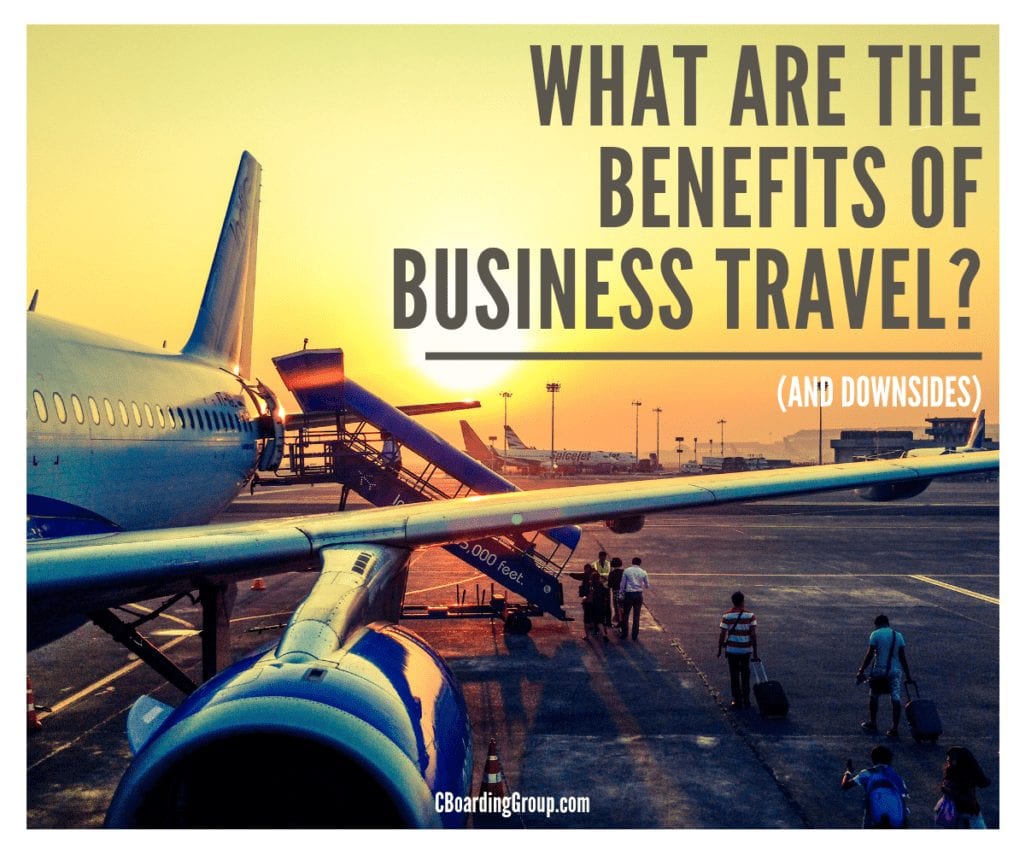
What are the benefits of business travel (and downsides)?
Congratulations. You just took a job that includes 25% travel (or maybe 50% or even more) . But you’ve never really traveled before and frankly you are a little unsure if this is a good career move or not. In this post I cover benefits of business travel as well as some of the downsides.
Before we get too far let’s define business travel. Here’s how we define it :
Business Travel is when employees travel (fly, drive, train, etc) for some company related activity. Often this involves meeting w/ a customer, visiting a project site, installing something, training, or meeting w/ staff in other locations.
Wikipedia has a more straightforward definition that we like to:
Wikipedia defines business travel as: “ Business travel is travel undertaken for work or business purposes, as opposed to other types of travel , such as for leisure purposes or regularly commuting between one’s home and workplace.” I think this is a fair definition of business travel.
There are no shortage of jobs where frequent travel is a key element . But, when considering a job that has frequent travel it’s important to look at the pros and cons. What are the benefits of business travel? To you? To the company? What are the downsides? In the remaining sections we examine these very questions.
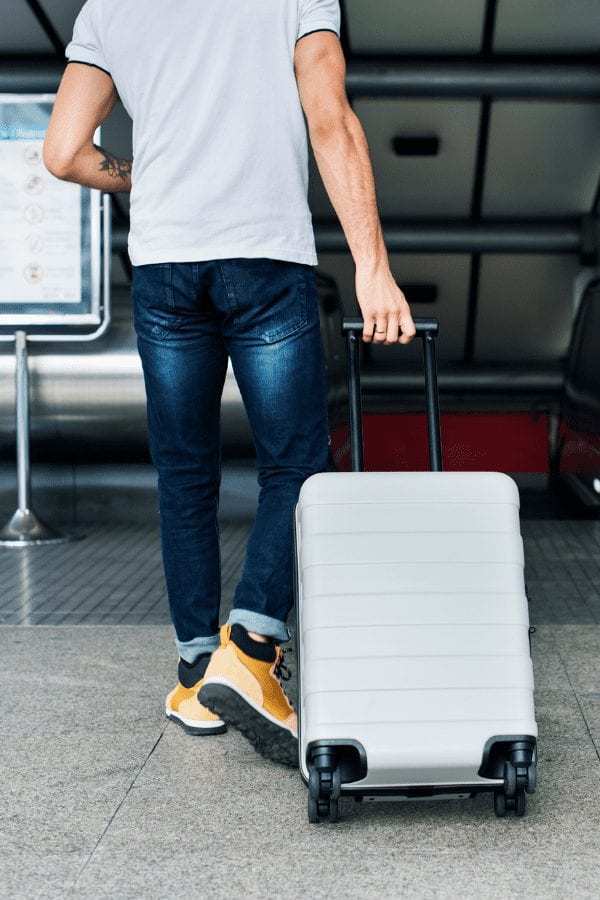
The Benefits of of Business Travel
Let’s start first with some of the benefits of business travel…and there are many:
- You will raise your profile inside your firm . Being willing to travel lets management know that you are an all-in kind of employee, willing to go the extra mile. It will start to let them view you as more than just a “doer.”
- You will be exposed to higher profile projects . By traveling you will likely get to visit and be involved in higher profile projects. For example, I got my big break by traveling unexpectedly to a customer’s site where an install was going wrong. I was with the CEO, the head of Sales, and the big dog’s from the customer. Great exposure. Especially when I delivered.
- You will learn to be flexible . Traveling involves a healthy dose of “crud, that happened.” You got to roll w/ the punches and travel will help keep you flexible which is always a good thing for the business world.
- You will meet new people inside your firm . I like this the most. Lots of good network opps on the road and the chance to build your virtual Rolodex.
- You will get 1:1 time with important people in your company . I spent 4 hours in a car w/ our national sales director – excellent bonding time. We now trust each other and I have an internal coach when I needed one. When you are on the road you often will be there 1:1 with key members of the firm. I once picked up and dropped off the CEO from the airport. Later he hired for me a very senior role.
- You will rack up points and miles that you can use to book personal trips . If you gonna travel you might as well get the points. Use those points to pay for your personal or family vacations.
- You can brag to your friends (via Instagram, of course) about your “glamorous travel life .” Hey, it’s not that glamorous, but what do they know. Give ’em the ole duck face photo at the Hampton Inn in Bismarck, ND and throw a sweet filter on it. They will think you are living the good life. #Sarcasm. Or if you are actually at some place sweet those photos will be awesome. #Millenial (not me!)
- You get to see a lot of interesting places (bucket list!) . Through business travel I’ve been able to visit almost all 50 states, and check off quite a few bucket list destinations. Sometimes you gotta rush through them given the business constraint, but its still far more economical than you could do on your own.
- You will gain a more global (or at least “National”) view of the world / country . If you live on the left coast (like I do), you might have a tendency to get a skewed view of the universe. I’ve spent so much time in all parts of this country that I know that there are equal parts good and bad people everywhere. Travel will bring you into contact with all kinds of folks.
Be sure to read: 147 Business Travel Tips – the ultimate list of road warrior tips & tricks
The Downsides of Business Travel
Yes…it’s not all glitz and glam and unicorns. In fact, often it’s not. Here are some of the downsides of business travel:
- Time away from family . This is the biggest drawback. And one I’ve struggled with. I love my family and I love providing for them. I know for a fact that I could not provide the same quality of life that I do today if I didn’t have a job that involved business travel. All the same, it totally sucks being away from your family.
- The hassles of business travel . Non-business travelers often think the business travel life is glamorous. And I suppose that parts of it are (like getting a sweet upgrade to first class), but the reality is that it’s a job and it has its own daily grind. You are cramped in airline seats, shuttling from one location to the next, tired, etc.
- You will be tired . Different time zones, jet lag and having to the “up” and “on your game” for you client meetings is taxing on the body. You learn to live with, but it’s still difficult.
- You will occasionally miss your kids events . This sucks. No two ways about it. I’ve made more events than I’ve missed, but sometimes you will miss a soccer practice or a midweek game. Not fun.
- You will travel to places people don’t really want to visit (like Minot, ND) – but I see this as an upside, honestly.
- You will be alone a lot . All of those bucket list places are often done alone. I’ve seen cool lighthouses…by myself. I can honestly say while it was cool to see, I wished my wife was with me. It would have made it so much better. At the end of the day, you are alone in your hotel room with your email and your TV.
For more thoughts on the downsides of frequent travel consider these articles:
- Travelling for Work: The Dark Side of Work Travel
- 9 Crazy Myths About Business Travel – Debunked!
- What to do on a Business Trip Alone – 7 Ideas to Never Be Lonely on a Work Trip
- Travel Tip Tuesday #19: Staying Connected is Important (to your loved ones!)
Final Thoughts on the Benefits of Business Travel
There are a lot of pros and cons to business travel. I have been doing it for many years and the impact it has had on my career has been significant. The world is pretty flat these days and many corporate jobs require some level of travel.
If you want to really advance in your career it is better to embrace the benefits of business travel. Find a supportive partner (my wife is amazing and we have a great routine! I could not do this job w/out her) and jump in headfirst. Your career will thank you.
Don’t forget to read my post on 11 Tips to Crush your First Business Trip for ideas on how to get the most out of your first experience and to avoid making those rookie travel mistakes.
By the way, if you are interested in more travel tips and travel advice, you might be like these great articles:
If you liked this content, please do us a favor share it on social media and click the “like†button below and don’t forget to follow us on social media including Twitter , Instagram , Pinterest and Facebook .
And, of course, if you are interested in more travel tips and travel advice, you might like these great articles:
- 147 Business Travel Tips  – the ultimate list of road warrior tips & tricks
- 31 Amazing Hotel Hacks  Travel Pros Use all the Time
- 53 Amazing Gifts for Business Travelers  in the 2020 Gift Guide for Travelers
- 9 Healthy Travel Snacks  – eat smarter on the road
- Product Review: OGIO Metro Backpack , The Business Traveler’s Backpack
- Ultimate Bitcoin Travel Directory : How and where to use crypto for travel
- How to buy a hotel mattress
- How to buy a hotel pillow
- How to buy hotel sheets
- 101 Travel Hacks for the Business Traveler  – the Best Business Travel Hacks
- 26 Must Have Travel Gadgets & Gear  to add to your travel kit
- The Ultimate List of the Best Travel Blogs 2020  Edition
- The Mileage Run  – A Frequent Flyer Travel Hack You Need to Know
- Top backyard water toys
- Best backyard games
- Top travel pillows
- Best travel purses
- Best luggage tags
- Best travel thermometers
- Where to buy face masks for travel
- Travel necessities
- Best travel games
- Best travel books
- Best packing cubes
- Anker PowerCore 200100 Review  – Should I Buy?
- Hilarious Travel Memes
- Why Frequent Travelers should buy their Travel Size Toiletries in Bulk!
- 3 Letter Airport Codes  – their history, funny ones and more
- Top Travel Pillows  – the best travel pillows for 2019
- TSA Drone Policy  – do they have one?
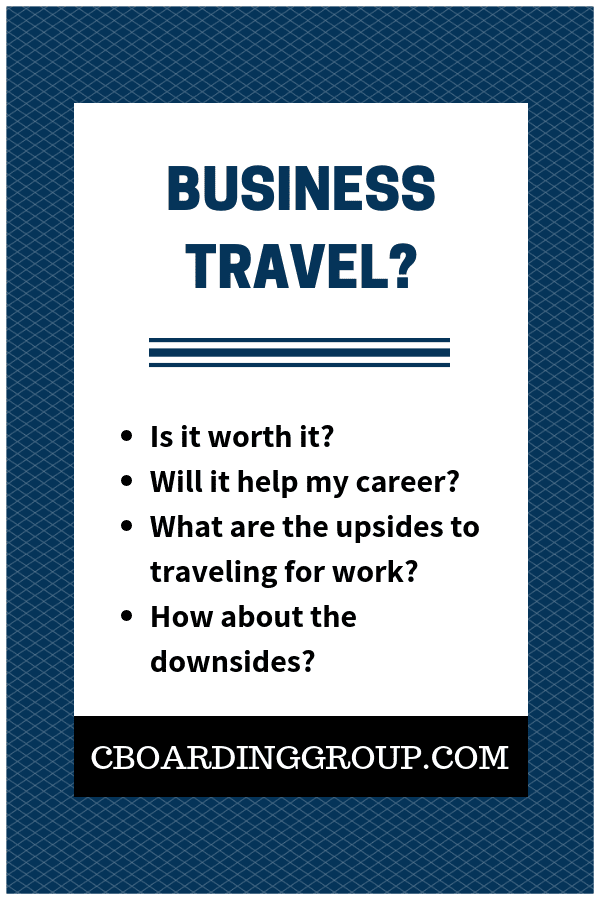
Affiliate Disclosure: As an Amazon Associate I earn from qualifying purchases. I may also earn commissions from other affiliate programs as applicable.
Jeremy Ballou is the editor of the CBoardingGroup.com and a long-time writer in both the travel and tech industry. Most days he's in thinking about travel or writing about it.
Travel Tip Tuesday #21: How to Fold your Towels like the Hotel does!
Steam clothes in shower to avoid ironing, you may also like, demon dentist freaks out and removes clothes at..., five days in slovenia: a guide to the..., can i fly with an expired license, what is a redress number and do i..., how to make your bed like a hotel..., how to stop your ears from hurting on..., the traveler’s first aid kit: how savvy business..., 11 tips on traveling with your boss –..., 23 jobs with travel: the ultimate list of..., deal alert: rockland wheeled underseat carry-on 72% off.
Enjoyed this article and it’s great that you have been able to travel on business for a long time.
One downside I’ve noticed is marital splits.
Thanks so much! And yes heavy travel can be rough on the marriage. No doubt about it.
I like the idea that I’ll be likely to get involved with higher-profile projects with business travel. My boss is offering me this opportunity since he told me that I have the potential to take over his place when he retires, and he wants me to get started as soon as possible with traveling on all parts of the country. If I were to choose, I’ll look for a company that posts business class travel fares so I’ll know how much I should put for the travel expenses when I begin my training.
You should definitely take advantage of it!
Leave a Comment Cancel Reply
Save my name, email, and website in this browser for the next time I comment.

The top pros and cons of travelling for business

Travelling can be a rather nice experience where we can learn a lot. We can learn about new cultures and broaden our horizons. When you run a business, or you work for a company that runs internationally , there are chances that you will have to travel now and again.
Whether it is for networking opportunities, to meet with clients, or another reason, it can prove to be advantageous to travel. But some downsides come with business travel.
Therefore, you must look at the advantages and disadvantages before leaping. In this article, we will be looking at the pros and cons of travelling.
Pros of travelling for business
To go further, here are the top advantages of travelling for business:
More networking opportunities
Networking opportunities are one of the biggest advantages that come with intercontinental travel. It gives you and your employees the chance to attend different events and trade shows, the business will have a chance to become bigger.
In these trade shows, you can link up with others within your industry as well as potential clients and build your brand. From meeting up with these people one-on-one, you will stand a higher chance of a strong relationship, rather than connecting with them virtually.
To link up with potential clients
Another outstanding benefit that comes with business travel is the chance to meet up with your clients physically. You get to see them in person and see their premises. You also get a better idea of what they need from your business.
Furthermore, you can also use the chance to advertise what you have to offer, instead of meeting with them using Skype or another virtual method, it will show a level of competence that your competitors may not provide.
It balances work-life
Maintaining a good work-life balance can help build up your mental and physical health . Work trips can be an excellent way to keep the balance between your personal life and your work .
A classic eight-hour shift may become repetitive along the line. Adding travel breaks to your schedule may change your routine and can make your life more entertaining.
Cons of travelling for business
While travelling is great for business, some minor disadvantages may be encountered.
It can be costly
Unfortunately, travelling for business isn’t cheap. Costing the company money each year depending on the number of staff that need to travel for work. It is something that might not be included in the budget for startups or small-scale businesses.
Also, you have to consider the plane ticket cost, food, and drink, travelling around the area. However, there are a lot of possibilities to choose a stay according to your budget and necessities, thanks to Spotahome now you can find studios to rent in London that can reduce the expenses of hotel rooms if you are worried about spending more than necessary and you are planning to stay for a reasonable period of time.
It can be stressful
Frequent business travel can be very stressful, when you or your employees are feeling the stress, it can result in the business trip feeling futile.
The emotion will affect the success of the trip and could damage your brand in the long run. For instance, if one of your staff arrives at an important meeting angry and stressed, it could put a restraint on the meeting.
You might experience communication problems
If you travel on business trips a lot, you will also face serious communication problems since you might not be able to communicate in a foreign language properly.
You might learn some words, but you will never be able to speak some unfamiliar language fluently , since you might not often put enough time into learning it.
These are the top pros and cons that come with travelling for business trips , it doesn’t matter if it’s a private jet or an economy class. It is something that cannot be avoided, you can consider other ways to ease the discomfort, this will help with the downsides.
However, the advantages that come with it should not be ignored also. It is a key way of building your company in the long run and spreading your wings. It could also give you the edge you seek in the business terrain.
Share this:
- Renewable Energy
- Artificial Intelligence
- 3D Printing
- Financial Glossary
Business Travel’s Demise Could Have Far-Reaching Consequences
I n 2019, Jason Henrichs took 46 flights for business, traveling to cities where he stayed at hotels, dined at local restaurants, and sometimes even visited tourist attractions like the Liberty Bell.
In 2020, he took just three flights.
The traveling life has its perks—Henrichs, the CEO of Alloy Labs, a consortium of community banks, has Executive Platinum status on American Airlines, Gold Elite status at Marriott, and membership in not one but three private airport lounges. He has 350,000 miles, which he can use to fly his whole family across the world for free.
But forced to stay at home during the pandemic, Henrichs got a taste of a life where he sees his family more, and is just as effective at work. He’s even been able to convince banking colleagues who have long been averse to giving up in-person meetings to move online. The talks he once flew across the country to deliver to boards of directors are more frequently streamed online now, and so are the meetings that would have lasted in a bank over 2 or 3 days but now are spread out over short Microsoft Teams huddles over 2 or 3 weeks. And lo and behold, he and his colleagues are getting more done.
“This isn’t about just reducing expense. This is about increasing effectiveness,” says Henrichs, who says he’ll likely travel once a month, rather than once a week, after the pandemic.
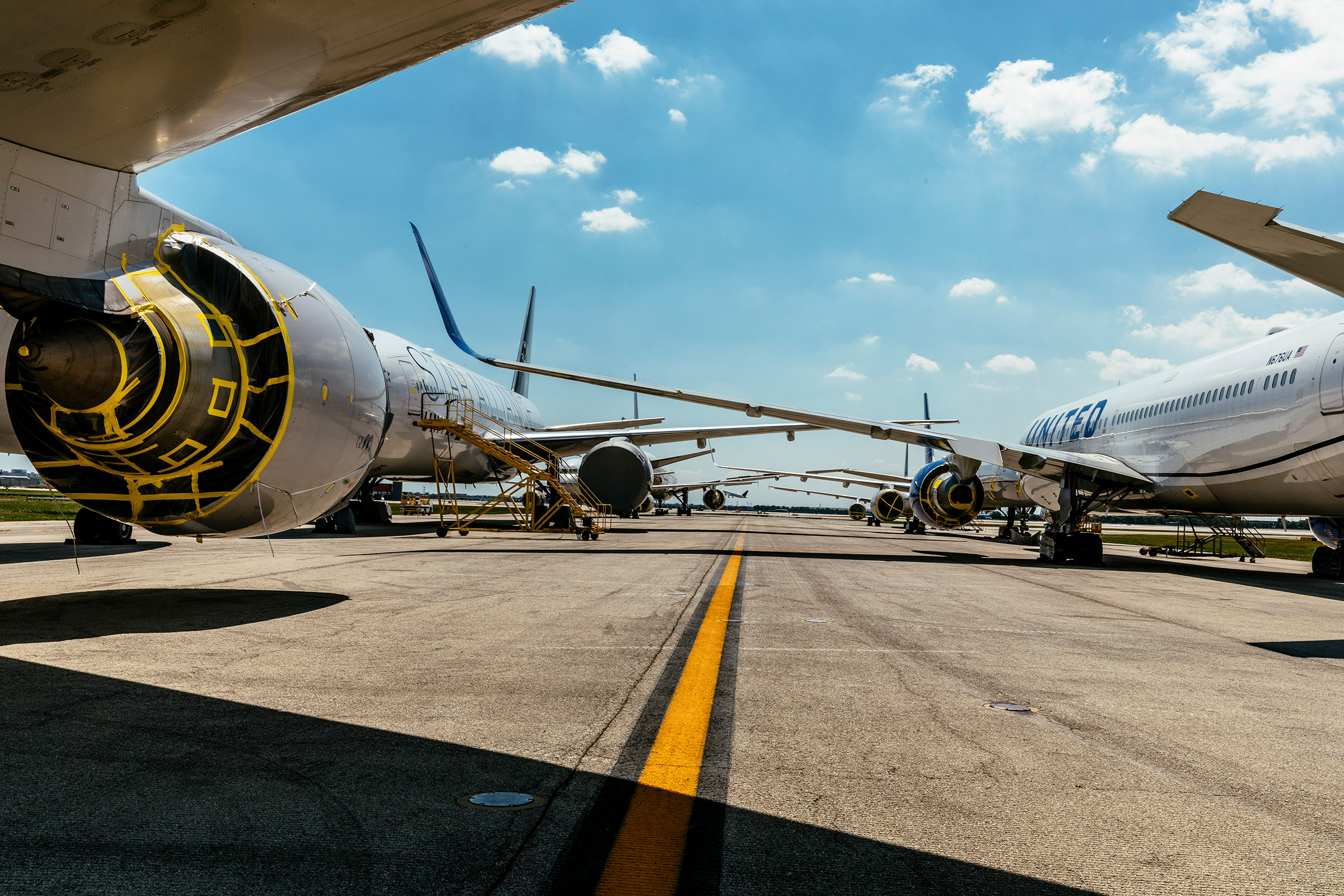
Tens of thousands of road warriors like Henrichs—and their employers—are coming to a similar conclusion, which is going to cause a reckoning for the already-battered leisure and hospitality sector. U.S. companies’ travel budgets declined by 90% or more in 2020, according to Deloitte Insights. Even if the pandemic ebbs, companies looking to become more environmentally sustainable won’t likely go back to the same volume of travel as before; corporations like Zurich Insurance Group AG, Bain & Company, and S&P Global have announced plans to cut business travel emissions in the next few years, with Zurich aiming to reduce emissions by as much as 70% by next year.
This could mean big losses for airlines, hotels, rental car companies, and other industries catering to corporate travelers. Business travelers make up 12% of airline passengers but 75% of revenues on certain flights. They brought in steady revenue to hotels when they attended conferences and events and then stayed a few extra days to vacation with their families.
Some executives predict that business travel will return to 85% of pre-pandemic levels, says Lindsey Roeschke, managing director for travel and hospitality analysis at Morning Consult. She considers that an optimistic take. “Even if I’m wrong, and we do see a return to those levels,” she says, “that’s still a massive loss for the industry as a whole.”
The hospitality industry is feeling it. During the pandemic, rental car companies like Hertz, hotels like the Fairmont in San Jose, and international airlines including Aeromexico, Virgin Atlantic, and LATAM all filed for bankruptcy protection. Government supports that kept the U.S. airline industry afloat ended September 30. The hotel industry is expected to earn $59 billion less in business travel revenue this year compared to 2019, according to the American Hotel and Lobby Association . Airlines are expected to lose $51.8 billion in 2021 alone.
“We’ve been burning cash for 18 months,” says Dave Harvey, vice president of Southwest Business. And now the government support has ended. “We’re all flying naked at this point in the fourth quarter.”
It can be hard to picture those losses in terms of billions of dollars. But it may be easier to picture the ripple effects—businesses closed, workers laid off, airlines canceling flights—of hundreds of thousands of Jason Henrichses traveling less.

The ripple effects of fewer business travelers
One of Henrichs’ favorite business travel destinations was Boston; he and his family lived there years ago, so he still had friends he could grab dinner with after a day of meetings. He’d stay near Back Bay, say, at the Marriott Copley Place, and wake up early to go for a long run by the Charles River before work.
He hasn’t been there since October of 2019.
Some of the places where he used to meet friends are now gone. He’d get dinner at Eastern Standard in Kenmore Square, or oysters at Island Creek, but both are now closed permanently after negotiations broke down between the restaurant owners and the real estate group that owned the properties.
He usually flies American Airlines, but since the pandemic, that airline has dropped some routes and is considering where else to cut. American is facing staffing shortages after furloughing flight attendants and offering buyouts to pilots during the pandemic; it has about 16,000 fewer employees than it did in 2019.
Henrichs stays mostly at Marriott hotels because it’s where he has elite status. Boston’s flagship Marriott, at Copley Place downtown, laid off 230 employees in September. Overall, Marriott hotels in the U.S. and Canada had a 45% occupancy rate for the three months ending June 30, compared to 80% in the same period in 2019, according to earnings reports. At least four Marriotts in New York City have closed permanently since the beginning of the pandemic.
It’s not just big companies that are struggling. Elizabeth Morales was a housekeeper at the Boston Copley Place for 26 years until she was sent home in March 2020 because of the pandemic. The company kept telling her they’d call her back when it got busier, until September of 2020, when it called her and hundreds of others and said their positions had been terminated. “It was really hard for me,” says Morales, 51, who supports her elderly parents. She applied for 30 jobs before she found a new one only a few months ago. Unite Here Local 26 organized a boycott of the Marriott, alleging the hotel is contracting out operations to companies who pay workers less.
Ironically, cuts like this could also make travel less pleasant for everyone when they return to travel. Business travelers subsidized other travelers, to some degree, so as they disappear, airlines are figuring out how to cut costs. They’re cutting routes to cities that people visited primarily for business, routing more flights through hubs, and talking a lot about efficiency. These cost savings also mean fewer available pilots and other flight crew, so weather delays and maintenance issues can trigger a huge chain of delays, as they did last week when Southwest canceled about a quarter of its flights after weather problems in Florida disrupted its network. Other airlines may see similar issues, especially if travel gets busier during the holidays. “We’re concerned about the holiday travel season—they say we’re going to fly more during the winter than we did in the summer, but we’re worried they don’t have the ability to fly that many planes,” says Capt. Dennis Tajer, a spokesman for the Allied Pilots Assn., which represents American Airlines pilots. (American did not return a request for comment, citing the quiet period before the company reports earnings on Oct. 21.)
Henrichs has already noticed the changes. On a recent trip to Harrisburg in August, Henrichs was told on a Friday, after weather delays and mechanical issues had grounded his plane, that the airline couldn’t get him home until Tuesday. (American cut a number of flights this summer because of weather, mechanical issues, and staffing shortages.) Rather than wait around, he rented a car and drove to Philadelphia, where he hoped to get on a plane the next day, only to find that Marriott’s website had crashed and the hotel where he thought he’d made a reservation was actually sold out. He went door to door until he found a vacancy at the Homeaway Suites, but by then it was 11 p.m. and there were no nearby restaurants open, so his dinner was a Bud Light and a bag of chips. He got home the next day. “The system has become less resilient,” he says.
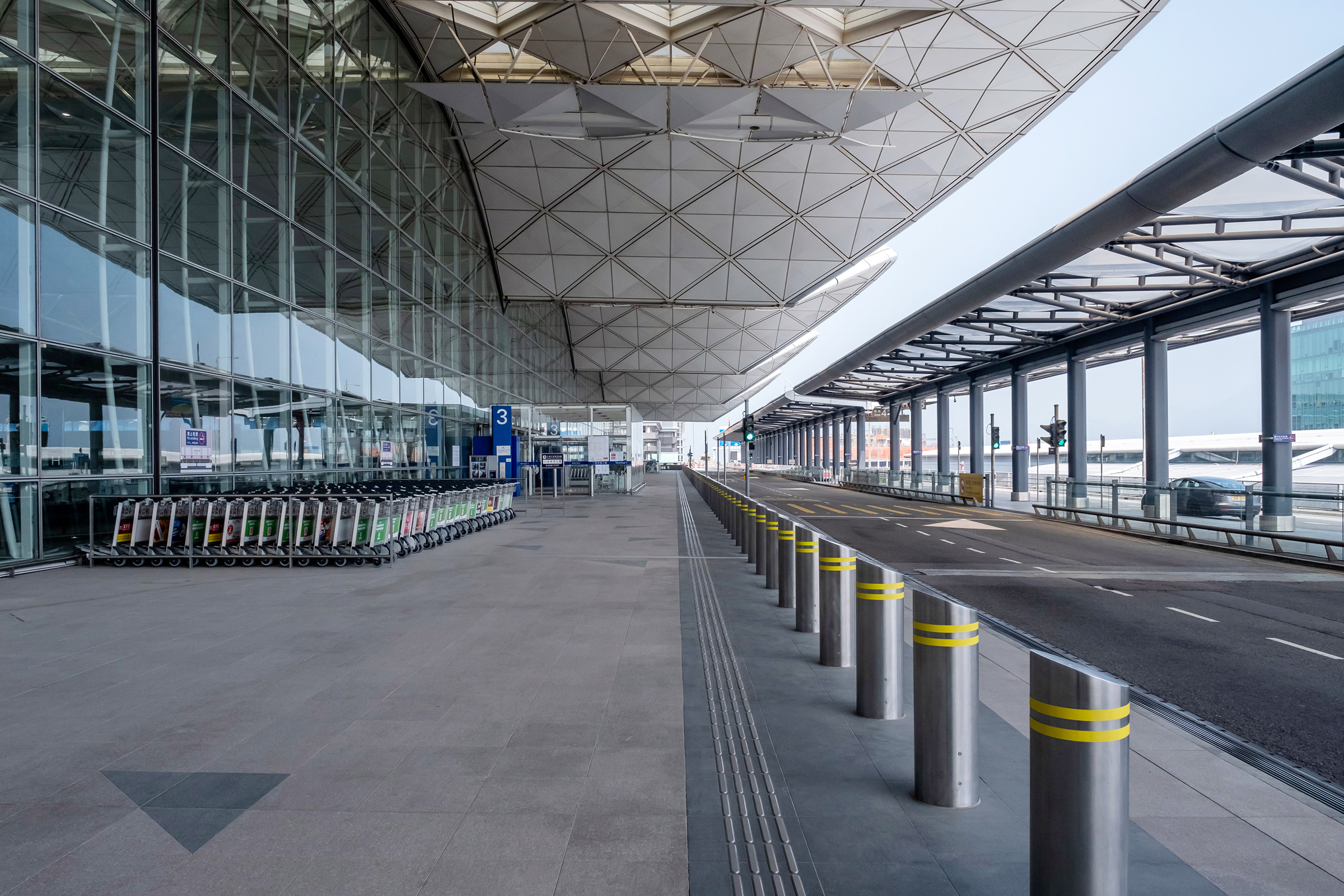
Some companies still think business travel will return
Some hospitality companies contest the idea that business travel won’t come back. “We are optimistic that we’ve turned a corner,” Anthony Capuano, Marriott’s CEO, said on an August earnings call, although special corporate bookings were down 45% compared to the same period in 2019. On a recent earnings call, Delta said it expected business travel to be back to 60% volume by the end of this year, and potentially 80-100% by the following year.
Southwest Airlines has actually doubled down on business travel during the pandemic, adding 18 airports, dozens of sales staff, and making it easier for corporations to book flights through their own travel systems
“There’s a pent up demand for face-to-face business meetings, conferences, events, networking—people are just starved for that,” says Harvey, of Southwest Business. Southwest is hoping to capture those travelers by attracting companies who want to pay lower fares but still want to travel, he says. He also argues that since companies have more remote employees now, there’s a new class of business travelers who have to fly to headquarters a few times a year.
But even people who have spent decades on the road say that the pandemic has made them realize that technology has finally made it feasible to have good communication without traveling. Tina Perkins, who has worked for Epic Systems, a Madison, Wisc.-based electronic medical records company, for 20 years, says she loved traveling to a new city once or twice a month to help hospitals implement Epic software. But “I have been sort of shocked at how we have been able to adapt,” she says. “We are as effective in this hybrid world, which was surprising having done some things one way for such a long period of time.” She says she’ll likely travel once every 4-6 weeks going forward, rather than once every 2-4 weeks. Other Epic travelers have made the switch too; employees now take, in total, about 1,000 trips a month, down from 3,500 before the pandemic.

The hotels and airlines that figure out how to make their model work without business travelers are going to be in the best position going forward, says Anthony Jackson, the U.S. Airlines Subsector leader at Deloitte. During the last recession, airlines expanded their premium economy seats to attract economy travelers who were willing to pay for an upgrade but not first class, and cost-conscious business travelers. Now, airlines will likely further expand premium economy, in part to give travelers still worried about COVID-19 a way to pay for more elbow room, says Alan Lewis, managing director for L.E.K. Consulting. Delta said October 13 that it actually made a profit in the three months that ended Sept 30, and that premium cabin seats drove much of that recovery. Business travel is still less than 50% recovered, the company said.
Like airlines, hotels are going to have to think up new ways to attract traveler money, says Roeschke, of Morning Consult. They might decide to try and lure digital nomads who don’t have to pay rent anymore and are traveling around the country as they work. Or they may offer “bleisure” – business leisure – packages to people who want to work and vacation all in one trip.
That may attract travelers like Henrichs, who still has to make some work trips. On his last business trip before the pandemic, Henrichs attended a weeklong conference of the American Banking Association in Orlando. Since his in-laws live near-by, he used miles to fly his wife and kids down to Orlando, too. They rented an Airbnb near the conference, and he commuted back and forth via Lyft. Still, the American Banking Assn. is holding the same conference this year in Tampa, but neither Henrichs nor his family are attending.
There is a silver lining to Henrichs traveling less frequently though; he says he’s spending more locally. He and his family are going out to local restaurants and checking out neighborhoods and businesses he would have been too burned out to try back in the days when he was always on the road. He hopes this will lead to a resurgence of stores on Main Street, the type of places that business travelers might not have deigned to visit.
“Normally, I travel so much that by the time I get home, I want to eat at home,” he says. “Now, I’m home plenty. So eating out can be fun again.”
More Must-Reads From TIME
- The 100 Most Influential People of 2024
- Coco Gauff Is Playing for Herself Now
- Scenes From Pro-Palestinian Encampments Across U.S. Universities
- 6 Compliments That Land Every Time
- If You're Dating Right Now , You're Brave: Column
- The AI That Could Heal a Divided Internet
- Fallout Is a Brilliant Model for the Future of Video Game Adaptations
- Want Weekly Recs on What to Watch, Read, and More? Sign Up for Worth Your Time
Contact us at [email protected]

Pros & Cons Of Business Travel Options
Arranging a business trip has a lot of planning and research involved. After all, you want to ensure everything runs smoothly for the trip. You want it to be as successful as possible, leading to potential leads and new clientele. But it’s not as simple as arranging the journey from A to B. You want to ensure your employee has a safe, comfortable and enjoyable time during business travel. After all, this will boost their morale and ensure higher work productivity. They are more inclined to make the trip again and it will benefit your company greatly.
The first thing you need to plan is how the employee will make the business travel. For instance, if they are going to fly to a destination, flights need to be arranged as well as the organisation of how they are going to get to the airport and the accommodation from the other end. If they are going to drive during business travel, you also need to arrange car hire. Research is highly important to make sure the right, efficient car is chosen for the trip.
You then need to sort out accommodation for business travel. Even a decade ago, the main option for business travel was hotels. But now this has broadened with a lot more options available for accommodation . However, now there are so many options, it’s hard to choose the right one for your employee. Therefore, here are the pros and cons of business travel options.
What to consider when making your decision on business travel options?
Before we discuss the different business travel options, here are a few things you should be looking for to ensure you make the right decision on the accommodation when conducting business travel.
One of the biggest requirements you are looking for with business travel accommodation is comfort. You want the employee to have a comfortable stay, so you want to choose accommodation which lets them unwind and relax after a busy day of business. After all, they are unlikely to want to go on a business trip again with the company if they have uncomfortable surroundings.
Security
You want your employee to feel secure when they are away on their trip. After all, they are going to be potentially alone on the trip, so you want them to feel safe at the accommodation. Therefore, whenever you are booking business travel options, you should have security as a top priority to ensure the employee feels safe on the trip.
While your business will not have an unlimited budget for business travel, you do want to ensure the employee has enough space for the trip. After all, they are not going to have an enjoyable trip if they have limited space. You want the employee to have enough space to be able to work from the location if possible as well as have space for the family if they are joining them.
You also need to consider the location of whatever accommodation you choose. After all, certain accommodation options will be closer to the business quarters than others. It’s most important for convenience that the employee can easily get to the workplace. Therefore, you should keep in mind location when picking out accommodation for business travel.
Business travel options- pros & cons
Here are a few of the different business travel options with the pros and cons for each so you can make a well-researched and informed decision on what is right for the employee, taking their specific requirements into account.

Serviced apartments
What is a serviced apartment.
A serviced apartment is an apartment which is let to guests on a fully furnished basis. It’s available for both short and long-term lettings so is suitable for a couple of days or a longer business trip. As well as offering guests accommodation, it has a range of services included in the price such as housekeeping and a concierge service.
They are like a home from home accommodation
With serviced apartments, you get a lot more space than you do in other types of accommodation. It feels like a home-from-home accommodation as you get various areas such as a kitchen area and a living room in your serviced apartment. For those who are constantly travelling for business, this type of accommodation gives them a lot more space and comfort. They will feel more relaxed and will be able to unwind, especially if they have had a busy day. It won’t feel like they are away on business with this type of accommodation. They will feel like they have a lot more freedom and independence during their stay.
The services you get with the accommodation
Another benefit of serviced apartments is that they have added services which makes the trip run a lot smoother for the employee. They will enjoy all the additional services which they might not get in other accommodations. From housekeeping to security, these will all ensure the business traveller has a secure and comfortable stay while they are on business travel. This also works out better for employers as they know all the extra activities are included in the one price.
Arranging own food
You do have to make your food when you stay at this type of accommodation which is a bit of a con. After all, a lot of business travellers enjoy the benefit of getting a cooked breakfast and dinner on-site when they are staying away. It makes it easier, especially if they are back late or up early. With this type of accommodation, employees have to hunt down cafes and restaurants nearby and will have to charge this to the company.

Serviced homes
What is a serviced home.
As above, this is a property, likely a house, which is fully furnished so has everything the business traveller needs for an enjoyable stay. It comes with services included in the price such as housekeeping and has all the bills included in the one specific price.
The size of the house
When you stay in this type of accommodation, you are going to have a great amount of room compared to the other options on this list. From having extra bedrooms to ensuite facilities, these are all luxury extras that the business traveller will love. These serviced homes work well if the employee is working away with their family going with them or if multiple staff members are going on one trip. After they can share the house and all the facilities with enough room for them all.
The option of a garden
We all know how important fresh air is for our mental and physical health. And with this type of accommodation, you can often get a property which comes with a garden. Therefore, you get to spend some time outside of the house and enjoy the outdoor area. This is brilliant for business travellers who are looking to unwind and have some space after a busy day with clients.
The location
In some cases, the serviced home might be a little bit further out than the other options on the list. After all, you might find it’s in a residential area rather than right in the middle of town. So you have to weigh up the location of the property before booking it for the employee to use on their business travel. After all, you don’t want to stress them out if they have miles to go to the business quarters.
What is a hotel?
A hotel is an establishment which offers paid stays. It tends to be in the short-term rather than long-term and the price of this tends to be nightly. The rooms tend to be similar in size although there are premier rooms or suites available for the stay. Facilities on-site regularly include restaurants and a shop.
The facilities available
One of the main benefits of choosing a hotel room for business travel is the wealth of facilities avaliable to the guest. Depending on which hotel you go for, the business traveller might get the use of a pool or gym on site. They can contact the front desk for additional services if required and they can help to organise trips and transport if necessary which is a bonus when travelling for business.
Food options
There are also good options when it comes to food when you stay at a hotel. For starters, a lot of this type of accommodation offers breakfast. Therefore, the business traveller gets a good start to the day and will be fed well in the morning. They also offer meals and have a bar on site to help the business traveller to unwind after work. You can also order room service so if you are hungry at the end of the day but don’t fancy restaurant seating, you can enjoy food in your room.
The lack of space
Even in the higher-priced rooms, you are going to get less space than other accommodation options. Aside from a bed, a chair and a bathroom, there isn’t much room for anything else. And if the business trip is a week, it can feel a bit small in this case and there will be limited room if anyone else is joining them on the trip.

What is Airbnb?
Airbnb has risen in popularity over the last decade and is a short-term rental which is owned and rented out to guests. You can book the rental for up to a month and it can be anything from an apartment to a cottage.
The price system for this accommodation
A lot of companies are using Airbnb for their business trips due to the price of this type of accommodation. Instead of doing a strict price on a nightly basis, they often do discounts depending on how long you are staying. It works out cheaper than other accommodation types on this list which is a lot more appealing to businesses.
The unique accommodation available
It’s also appealing due to the different types of properties available. There are some unique options which will make an enjoyable stay for the business traveller. Airbnb often has some extra features which will make it even more comfortable for the guest. And whether you want them to stay in an apartment or a villa, there are a variety of options available.
The lack of facilities
While you get to enjoy what is on offer in the home, you are unlikely to get as many facilities as with other types of accommodation. You might have to pay extra for the employee to use the gym or pool if there is one on-site. There might not be parking or housekeeping which you get automatically in most cases with a serviced apartment or hotel.

1000s of quality assured homes across the UK

All property partners are independently accredited by the Short Term Accommodation Association

Professionally cleaned and managed homes, meeting the STAA'S guidance on cleaning standards

A home from home experience, even when you are travelling for work
Read what interests you most:
Receive an exclusive guide when you sign up.
Simply sign up to our newsletter and be the very first to find out exclusive information for all the latest work travel and accommodation news and we’ll send you a free guide on making the most from short term rentals.
We won’t spam you. Ever.
- Business Glossary
- > Business Travel Definition
Business Travel Definition
Business travel is the practice of employees or professionals going on trips, usually to other locations or cities, on behalf of their company to conduct work-related activities, such as meetings, conferences, or client visits.
Starts at $0 + state fees and only takes 5-10 minutes
What is business travel?
The simplest business travel definition is travel that is undertaken for business purposes. Business travel does not include daily commutes or trips for leisure purposes. Usually, business travel implies work that requires being away from home for at least a day. Each individual journey is considered a “business trip.”
Business travel can be one of the biggest expenses for a company, whether you have a corporation, limited liability company, or other legal entity. Understanding why it may be necessary and how it can impact your business taxes is essential.
What business travel expenses are tax-deductible?
The Internal Revenue Service (IRS) has its own business travel definition. According to the IRS , business travel includes any travel that the taxpayer does away from the general area of their home for business purposes. Working away from the general area of your home is defined as outside the entire city or the general area outside your principal business location.
If you are a small business that is just starting out, it’s important to save as much as possible, even when on the road. Keeping track of tax-deductible expenses will be important when it is time to pay your taxes. The IRS defines deductible business travel expenses as “ordinary and necessary” costs incurred. These include transportation, lodging, meals, entertainment, and some incidentals.
These expenses are deductible by the business as long as there were no reward points used to pay for any of the expenses. For a business to deduct business travel expenses, they must be paid as reimbursements to employees. A business tax professional can provide more detail on how deductible expenses work. Just remember to keep track of them.
Business Travel Examples
There are countless reasons you would need to go on a business trip. Many of these factors relate to the industry you are in and how your products or services are marketed. Here are some common reasons to go on a business trip:
- Attending a business conference, trade show, or convention
- Installing equipment for a client
- Job-specific training
- Meeting in person with remote colleagues
- Evaluating a project site or location for expansion
- Industry networking
- In-person meeting with an important customer
- Negotiations with suppliers
- Giving or witnessing a product demonstration.
In today’s largely remote environment, many companies communicate online with workers in different locations. This can be beneficial to limit the need for travel. But it may also mean that employees have to travel to meet for collaborative in-person work.
Business Travel Benefits
Whether you are the owner of a company or an employee, business travel can have a lot of great benefits. Employees may have the opportunity to learn more about your specific industry and return with new admiration and passion for their role, along with new ideas. The specific benefits are generally determined by the purpose of the trip. And some people simply enjoy seeing new parts of the world while on business trips.
Business Travel Disadvantages
Everyone’s situation is different. If the employee has children or a close extended family, frequent business travel may pull them away from meaningful events. Occasional travel is reasonable for most people, but when large amounts of time are spent on the road, it can have a negative impact on morale and mental health. Business travel can also be costly, so weighing the costs versus benefits is essential.
Summary
Business travel is a work-related trip that doesn’t include daily commutes, holidays, or vacations.
We Can Help
If you are just starting your journey to becoming a business owner, we can help you through the process with our Business Formation Service and help you plan for growth along the way. One of the best things you can do to ensure continued success is to stay organized.
Give yourself the best opportunity to move forward smoothly by having all of your documents in one place and all of your expectations set. This can include contracts for your relationships with employees, expectations for business travel record keeping, and more. We can keep you focused with our Business Template Document Library . There are so many things to think about when you are running a business. Let us help, so you can go out and do the fun stuff.
Disclaimer: The content on this page is for information purposes only and does not constitute legal, tax, or accounting advice. If you have specific questions about any of these topics, seek the counsel of a licensed professional .
Written by Team ZenBusiness
ZenBusiness has helped people start, run, and grow over 500,000 dream companies . The editorial team at ZenBusiness has over 20 years of collective small business publishing experience and is composed of business formation experts who are dedicated to empowering and educating entrepreneurs about owning a company.
Ready to Start Your Business?
Start Your LLC
- Formation Services
- Registered Agent
- Worry-Free Compliance
- Operating Agreement
- Annual Reports
- New York Publication
- Refer friends, get $25
- Compare ZenBusiness
- Public Benefit Corporation
- Diversity, Equity, and Inclusion
- Help Center
- Terms of Use
- Privacy Policy
- Partner Program
- Affiliate Program
Made with 🌮 remotely by ZenBusiness INC © 2024. All Rights Reserved.

The comeback of corporate travel: How should companies be planning?
It seems that, finally, the light at the end of the pandemic tunnel is in sight—at least in some parts of the world. In 2020, total global business travel expenses contracted by 52 percent, while managed corporate-travel spending in the United States plummeted 71 percent, or $94 billion. Last year, when we reported on the impact of COVID-19 on corporate travel, we projected that the road to recovery would be a long and uneven one.
Much has changed since then, thanks largely to progress on the vaccination front. Even though there’s much debate surrounding the timing of herd immunity in the United States, it’s indisputable that vaccination rates are on the rise across the country. At the time of writing, more than 40 percent of the US population has been fully vaccinated , with more than 50 percent having received at least one dose. Companies are starting to bring employees back to offices. Corporate executives are planning in-person meetings and gatherings with customers and colleagues.
In light of new developments, to what extent will videoconferencing replace business trips? How should corporations prepare for the next phase of business travel? While our insights from last year still hold, we’ve sharpened our understanding of how business leaders could be thinking about the postpandemic role of corporate travel. In this article, we identify four categories of business travelers—the “never left,” the “never returning,” the “fear of missing out” (FOMO), and the “wait and see” segments—and provide recommendations for how key players in the corporate-travel ecosystem can make effective plans in this context.
What’s changed: Increased vaccination is expanding flexible work arrangements
The most significant change shaping our thinking about the return of corporate travel is the rising vaccination rates in the United States and Europe. We project that the United States and the United Kingdom will slowly transition toward normalcy in mid-2021, with the rest of the European Union following shortly after (Exhibit 1).
Notwithstanding the risks presented by new virus strains and limited visibility into the duration of vaccine immunity, rising vaccination rates are ameliorating some of the travel anxiety. Many organizations are now proactively figuring out the future of work —which includes the role of business travel.
For many companies, COVID-19 has proven that more workplace flexibility is possible . Around 70 percent of executives said their companies will employ more temporary workers than before the pandemic, and 72 percent of executives report that their companies have started to adopt permanent remote-working arrangements for a subset of their employees. Nearly 40 percent of the workforce in the United States has the potential to work from anywhere. These signals and others suggest that many organizations are reevaluating working and organizational arrangements , including when, why, and how their employees should hit the road.
There’s no consensus, however, among business leaders about what to do with this newfound flexibility, and many organizations have not yet clearly communicated a vision for postpandemic work: around 30 percent of executives in a recent survey say they have not heard about specific plans for corporate travel after the pandemic, while another 28 percent described their companies’ plans as vague.
Four key segments in the return of corporate travel
Breaking down corporate trips into different segments can help travel planners and suppliers plan for the return of corporate travel. We’ve identified four different business-travel profiles, each sitting at a different point on the travel-resilience spectrum. Three indicators were used to define each archetype and determine its position on the spectrum: sector, travel purpose, and whether the trip was domestic or international. For travel purpose, if in-person interactions remain critical for a company, then the more resilient such business trips are. Some assumptions were made on how likely it was that some forms of corporate travel would recover rather than be substituted by videoconference technology.
The profile mix varies from company to company, and it’s possible for all four to coexist within the same organization, although some might feature more prominently in some companies and less in others.
- The “never left” segment. On one end of the spectrum, employees for whom travel is deemed essential for conducting business resumed their trips as soon as lockdowns eased. This category accounted for around 15 percent of all corporate travel expenses in 2019 and includes managers in manufacturing companies with a wide distribution of factories and plants and field-operation workers. Those who were reluctant to fly opted for rail and private cars instead.
- The “never returning” segment . On the other end, business travelers that contributed to one-fifth of business travel spending in 2019 present an enticing opportunity for corporations to permanently slash their corporate-travel budgets. Digital adopters who are able to maintain high levels of effectiveness while working remotely may never return to corporate travel. Furthermore, advances made in digital technologies that enhance oversight of outposts have paved the way for corporate travel to be further reduced. For instance, many chain restaurants found ways to minimize corporate travel by replacing in-person visits with virtual alternatives, as well as establishing more local oversight systems. They are likely to want to keep these significant cost savings; although a certain number of business trips will continue after the pandemic even in this segment, they will do so at much lower levels than before.
- The “fear of missing out” (FOMO) segment. The bulk of business travel (60 percent of business-travel expenditure in 2019)—which will likely drive the rebound of corporate travel—will be fueled by the FOMO segment: those traveling to cultivate important client relationships. Small and medium-size enterprises (SMEs) will likely increase corporate travel at much faster rates, as they are not subject to the heightened approval process that large enterprises have to follow. SMEs are likely to trigger a domino effect where one company’s resumption of business trips will catalyze its rivals’ return to work-related travel. Faced with intense competition, different players in the company (leadership, management, staff) coalesce to reinstate corporate travel at scale to seize a first-mover advantage over rival businesses. An April Global Business Travel Association (GBTA) member survey reported that more than 50 percent of respondents are developing or plan to develop a timeline for resuming travel, updated travel policies, or new safety resources and information for travelers.
- The “wait and see” segment. This segment consists of workers in relatively noncompetitive industries and roles; it contributed 5 percent of total business-travel spending in 2019. These corporate travelers tend to come from the public sector, professional associations, and nonprofits. During the pandemic, many professional associations were able to hold virtual events to replace in-person conferences and will likely be more cautious in their return to travel.
Taken together, the trajectories of the four travel categories confirm our earlier projection of an uneven recovery for corporate travel. Overall, we can expect a 20 percent reduction in corporate travel spending by 2023.
In addition, it’s worth noting that even within these segments, business-travel recovery will vary depending on the purpose and distance of the business trips (Exhibit 2). For instance, even for firms in the “never left” segment, overseas travel to attend international conferences has not returned because of government-imposed restrictions due to public-health concerns. Furthermore, given the uneven rollout of COVID-19 vaccines internationally, the return of international travel may be further suspended in regions with limited or delayed access to vaccines due to sustained public-health restrictions and/or disease outbreaks. On the flip side, “never returning” business travelers may still make exceptions for key events that are held regionally.
In the United States, a comparison of a multinational conglomerate’s internal and external travel spend and that of a private health insurer provides an example of how the recovery trajectory may differ from business to business (Exhibit 3). Internal travel encompasses trips taken for intracompany purposes, where employees participate in activities such as training, team building, or inspection of field operations. External travel, on the other hand, refers to trips employees take for engagements outside the company, including in-person meetings with clients and suppliers, trade conferences, and customer sales calls.
The multinational conglomerate we examined, a manufacturer of building products, had a total travel spend in 2019 of around $80 million. As a customer-driven business, the company spends the majority of its travel expenses on external travel. Much of this falls into the FOMO segment, which is already recovering at a faster pace this year relative to internal travel even though the overall travel expenditure remains depressed. The bulk of its internal travel was for the purposes of internal collaboration in 2019, a third of which is expected to be permanently eliminated, while the rest should gradually return over the rest of this year and 2022.

A McKinsey Live event on 'Returning to corporate travel: How do we get it right?'
Approaching the future of corporate travel: Four steps
Charting a safe and effective road map for future corporate travel requires all players to collaborate. Key players in the ecosystem—suppliers (including airlines, hotels, car-rental and rideshare companies), corporate-travel planners, travel intermediaries such as online travel agencies (OTAs), global-distribution-system (GDS) providers, and travelers themselves—need to master four critical skills: leveraging real-time data, planning with agility, aiming for comfort and safety, and communicating with clarity.
Leverage real-time data
Planning for the future can feel like flying through a fog of uncertainty, which makes it even more important for players to leverage real-time data to inform their decision making. Organizations could invest in data capabilities to identify and monitor the first signs of an acceleration in business travel.
Planning for the future can feel like flying through a fog of uncertainty, which makes it even more important for players to leverage real-time data to inform their decision making.
OTAs and GDS providers may be worth exploring as new data sources. Travel intermediaries such as these are uniquely situated to provide aggregate data for each industry. For instance, they can inform a corporate-travel planner how many seats are being booked by the rest of the company’s sector, signaling whether the company is ahead of or behind the curve. Many corporate-travel planners are also concerned about the fluctuations in the cost and availability of tickets, given the volatility of flight schedules during this time. Intermediaries can provide data that suggest which flights are more likely to stay on an airline’s schedule, helping clients build more agility into their decision making. Intermediaries may be able to create a new revenue stream from these data.
Would you like to learn more about our Travel, Logistics & Infrastructure Practice ?
Real-time data also help suppliers of corporate travel, such as air carriers and hotels, become more agile. As corporate travel returns, these suppliers will need to deploy the right resources in real time to match demand, which may shift abruptly. For example, one airline made a costly mistake by being unprepared for the sudden spike in demand for leisure flights over the recent Easter holiday. As recovery will likely be uneven, airlines will have to figure out how to have aircraft, pilots, and crew on standby so they can increase capacity quickly whenever there’s a need. Organizations can meet regularly to discuss data-driven insights and align on next steps.
Embed agility into planning
It pays to have a detailed plan and strategy for different recovery scenarios in place. When demand picks up, many firms may find that they don’t have the time to pause and think through their strategies.
When it comes to organizing business trips for employees, corporate-travel planners will need to take into account four considerations:
- First, the factors that affect whether corporate travel should increase: for example, local and regional infection levels, customer demand, and competitive actions.
- Second, the relevant data sources used to evaluate these factors: these could include public-health indicators, customer surveys, data from travel partners on industry trends and competitor behavior, and real-time pricing from GDSs consistent with typical corporate agreements, even as airline-fare classes go through realignments.
- Third, company policies on business travel: What distance-based policies should staff adhere to? Should they use rental cars, rideshares, taxis, or flights? When should they wear masks or engage in group gatherings? How (and should) companies distinguish between what activities vaccinated and unvaccinated employees can participate in?
- Fourth, information needed by travelers: this includes websites, travel help desks, and messaging.
A US health-products wholesaler and manufacturer provides an example of how these considerations work together. Currently, the company’s factories are open, while corporate offices remain closed and corporate travel is at a standstill. The company recently decided to stage-gate the resumption of corporate travel, starting with executives. Critical sales meetings and conferences will be in the next wave of business trips, followed by general sales and internal corporate activities, and finally, internal training and events. The level of corporate travel varies by state, based on local infection and vaccination rates. The company also set up tracking codes in its customer-relationship-management system to monitor when sales are won or lost due to competitive travel, which involved working with its corporate travel agent to get data on corporate-travel bookings.
The company instituted different policies for each level, including when masks must be worn, the permitted group size for indoor gatherings, and what lodging choices should be made (for example, home shares are avoided for safety and sanitation reasons). The company is developing internal brochures and a communications plan to keep its employees informed.
Personalize experiences based on safety and comfort
Safety and comfort are crucial elements in the travel experience, and they can sometimes pull in opposite directions. More can be done to bridge this gap. Both employers and travel companies could find ways to give passengers peace of mind and improve comfort and convenience. The guiding principle here is giving the traveler greater control over decisions that affect their sense of comfort and security.
For instance, airlines can personalize flight experiences by improving the functionality of their mobile apps to allow passengers to preorder their meals and snacks or make special requests. Hotels may let guests decide on the frequency and timing of housekeeping. They might consider offering initiatives that improve guests’ physical and mental well-being, for example, by offering virtual trainers to guide meditation or fitness practices. Suppliers could also consider offering radically transparent flexibility policies and allow customers a greater range of options with different associated fees for cancellations and changes.
Communicate with clarity
Even the most seasoned travelers have to accept that traveling has changed. Masks have become ubiquitous, and border restrictions, boarding procedures, and hygiene requirements seem to be ever changing. It’s critical that organizations communicate clearly what their corporate-travel policies are at any given moment in time, for every stage of the journey—from pre- to post-trip.
It helps for organizations to be extra proactive in communicating any type of change, whether regarding company-wide strategic policies or more granular details such as the company’s preferred rideshare or car-rental options for corporate travel. When changes in operations are made, companies can take special care to ensure the availability of amenities. Leadership can play a prominent role in modeling how to travel in this new reality by clearly reiterating company policies. Information websites, travel help desks, and easily digestible infographics could all be used to get the message across. Keep channels of communication open and allow employees to give feedback and raise concerns as and when they arise.
Employees, too, will go through an adjustment period as they resume their business trips. Leadership can communicate that it’s OK for them to take it slowly and that they should raise concerns if they ever feel unsafe.
Some corporate travelers will find they have to adapt quickly to the many changes in business travel, while others will have the luxury of easing themselves in over a longer period. Unpredictability will continue to be a fact of life, but one thing is certain: if everyone plays their part well (and smartly, by leveraging the technologies and processes at our disposal), the resumption of corporate travel is possible.
Jenna Benefield is a consultant in McKinsey’s Philadelphia office, Vik Krishnan is a partner in the San Francisco office, Esteban Ramirez is the capabilities and insights team leader in the San Jose office, and Matthew Straus is an associate partner in the Chicago office.
The authors wish to thank Guenter Fuchs, Jennifer Heller, and Jillian Tellez for their contributions to this article.
This article was edited by Jason Li, a senior editor in the Shanghai office.
Explore a career with us
Related articles.

The travel industry turned upside down: Insights, analysis, and actions for travel executives

For corporate travel, a long recovery ahead

Corporate travel: The long road to recovery
- SUGGESTED TOPICS
- The Magazine
- Newsletters
- Managing Yourself
- Managing Teams
- Work-life Balance
- The Big Idea
- Data & Visuals
- Reading Lists
- Case Selections
- HBR Learning
- Topic Feeds
- Account Settings
- Email Preferences
The Hidden Benefits of Short-Term Business Travel
- Andy Molinsky
- Melissa Hahn

Make the most of even the briefest trip.
Much has been written about long-term expatriate assignments , but for many of us, a more common “assignment” is the short-term business trip — that four-day jaunt to Dubai or the there-and-back trip to Buenos Aires. Too often, these whirlwind treks leave us numb. As we move from one hotel chain to another and order the same Starbucks drink in London that we do in Shanghai or Tokyo, it can feel like just another business trip as opposed to a personally meaningful cross-cultural adventure.
- Andy Molinsky is a professor of Organizational Behavior and International Management at Brandeis University and the author of Global Dexterity , Reach , and Forging Bonds in a Global Workforce . Connect with him on LinkedIn and download his free e-booklet of 7 myths about working effectively across cultures .
- Melissa Hahn teaches intercultural communication at American University’s School of International Service. Her new book, Forging Bonds in a Global Workforce (McGraw Hill), helps global professionals build effective relationships across cultures.
Partner Center

5 Common Business Travel Challenges (& How to Overcome Them)
Business travel challenges are unavoidable. but, with the right approaches, you can overcome them to maximize your program’s potential..
Business travel is an absolute necessity for many organizations. Without it, they wouldn’t be able to meet with prospects, close sales, keep existing clients happy, make strategic decisions, etc. But business travel challenges can be discouraging — if you don’t know how to navigate through them.
Most business travel challenges fall into a limited number of categories. Here’s a look at 5 of the most common challenges, plus ideas for how you can overcome them.
1. managing risk.
When it comes to business travel challenges, managing risk is at the top of our list. All organizations have a duty-of-care responsibility to their traveling employees. The collection of strategies and tactics that organizations use to live up to that responsibility is known as risk management.
Risk management means knowing where your Travelers are in the world at any given moment, plus having an actionable plan in place to get your Travelers home safely should a natural disaster or civil unrest develop. Risk management also means having a plan for employees who fall ill, get injured or experience another threat to safety and wellness when traveling on behalf of the company.
Most travel management companies (TMCs) offer duty-of-care and risk management services. They offer these services because organizations rarely have the in-house capabilities to fully manage risk to the expected level in today’s environment.
This will be a common theme among these 5 challenges. In most cases, working with a TMC gives you access to the specialized knowledge, capabilities and resources needed to maximize your travel program.

2. Monitoring Prices
Travel prices are dynamic. You look at flights one day, and they are exceedingly more expensive than they were just the day before. No one can effectively monitor travel prices on their own. What you need is technology that ensures your Travelers are getting the best value possible when they book trips.
The good news is that most organizations now use some sort of booking tool , and those booking tools almost always include price monitoring features. How do you identify the right booking tool with price monitoring for your business? This is another area where TMCs come in handy. A TMC can recommend travel technologies that best fit your program and its objectives.
3. Navigating Trip Disruptions
Flight cancellations and other trip disruptions are a pain when you travel for leisure. But, when you are traveling for business, they can mean a missed sales opportunity, an empty lectern at a conference, or an existing client that churns. When this business travel challenge is overlooked both the Traveler and the Company pay the price.
The best TMCs provide service before, during and after travel. That middle part is essential: support during travel. When you’re sitting at an airport and a flight gets canceled, your TMC starts working to book you another flight while everyone else is racing toward the ticket counter. When your hotel is oversold, your TMC gets you a room at the property next door. And, when your rental car company is out of sedans, your TMC gets you a bigger, nicer vehicle.
When your Travelers try to navigate trip disruptions on their own, they are left scrambling like everyone else. When you have a TMC on your side, your Travelers get a proactive advocate who works to make things right.
4. Avoiding Unnecessary Costs
Travel-related costs can really start to pile up. Some costs are relatively easy to track and manage, including anything that’s incurred through a booking tool. But meals, ride-share and taxi costs, fees and other incidentals are difficult to manage and avoid.
Find a TMC that offers advanced cost avoidance, which better tracks all your expenses so that you can ultimately manage and avoid as many of them as possible.

5. Capturing and Analyzing Data
What gets measured gets managed. Are you effectively capturing your company’s travel data so that it can be analyzed — and ultimately used to improve your program? If not, you are behind the times.
A TMC can help implement the tools and technologies needed to capture as much travel-related data as possible. This data will be essential in helping you uncover opportunities for savings, as well as for demonstrating travel-related ROI to the organization’s decision-makers.
The TMC That Sees You Through Any Business Travel Challenges
At JTB Business Travel, we specialize in walking alongside our clients as they experience travel-related challenges. We can help your organization manage risk, monitor prices, rebook after trip disruptions, avoid unnecessary costs, and capture essential data. As your TMC, we bring a common-sense approach to business travel that delivers results for your organization.
Contact u s to learn more about what we can accomplish as your TMC.
Related Post

The In’s and Out’s of Carbon Accounting
Take your sustainability efforts to the next level with carbon accounting. Here’s everything you need to know about getting started. More and more employers and employees alike have begun considering their impact on the planet Read more

5 Tips for Business Travel Expense Management
Whether you’re a Traveler, Executive, or Travel Manager, travel expense management comes with its challenges. It’s no secret that the global economy hasn’t exactly been in spectacular condition over the last few years. According to Read more

The Trouble with an Airline Targeting Business Travelers Directly
You may have recently come across an airline targeting business Travelers directly. But is it really a good idea to bypass the middleman and book directly? Airlines benefit from direct sales. Yes, airlines do commonly Read more

A Guide to the Travel Subscription Pricing Model Trend
Shopping for a travel management company (TMC) for your SME? You’ve likely come across several different TMC pricing models. One of these is the travel subscription pricing model. Is it the right fit for your Read more

Just Get Started With Sustainability — Don’t Worry About Perfecting It
As you begin to contemplate your business goals for the new year, your attention may be turning to sustainability. However, it can be difficult to know how to get started with sustainability. Carbon footprints, carbon Read more
Leave a Comment
Add to the conversation or ask a question: cancel reply.
This site uses Akismet to reduce spam. Learn how your comment data is processed .
Post Categories
- For Executives
- For Travel Managers
- For Travelers
- Press Release
Recent Posts

So, What Do Flight Attendants Do Anyway?

Travel by Train vs. Plane for Short Trips

What is Skiplagging? Think Twice Before You Skip!

Prioritize Traveler Mental Health and Wellbeing with Stress-Free Travel
Stay up to date.
The Choice Is Yours - Get the exact Business Travel information you want delivered directly to your inbox.
TravelConcierge News
TravelConcierge News (Japanese)
- Travel Risk Alerts
Waypoint Monthly News
JTB Event Updates
The latest from JTB Business Travel
- So, What Do Flight Attendants Do Anyway? They give a safety briefing and pass out some drinks, but their jobs are much more important than you might initially think. So, what do flight attendants do in the modern age of flying? As a frequent business Traveler, you may take flight attendants for granted and hardly notice them, even as they tryRead […]
- Travel by Train vs. Plane for Short Trips When it comes to choosing travel by train vs plane, there’s a lot to consider: speed, convenience, price—and, of course, sustainability. Depending on where you live in the world, your first instinct might be to take the train if the journey’s short enough. This is especially the case if you live in a region withRead […]
- What is Skiplagging? Think Twice Before You Skip! Plenty of travel hacks aim to help you travel further, for cheaper — but many come with downsides. So what is skiplagging, and is it worth the risk? Are you familiar with the travel influencer community on social media? If so, you’re likely well aware of just what lengths these individuals will go to, toRead […]
- Prioritize Traveler Mental Health and Wellbeing with Stress-Free Travel Ensure your Travelers are more productive on the road and willing to take that next business trip. Prioritize more positive and stress-free travel experiences. It’s no secret that much of the world is living in a stressful state as of late. According to an Ipsos report from late 2023, 62% of survey respondents said theirRead […]
- The In’s and Out’s of Carbon Accounting Take your sustainability efforts to the next level with carbon accounting. Here’s everything you need to know about getting started. More and more employers and employees alike have begun considering their impact on the planet both while at home and while traveling for work. If you’re among them, you may have come across a rangeRead […]
- Meet Peggy Regan: Advocating for Clients and Supporting Traveler Goals For this senior account manager, travel is simply in her DNA. Chicago-based Peggy Regan started working in the travel industry in the 1980s. Today, she’s one of the newest members of the JTB Business Travel team, joining us as a senior account manager in October 2022. Keep reading to learn more about how Peggy gotRead […]
- 5 Tips for Business Travel Expense Management Whether you’re a Traveler, Executive, or Travel Manager, travel expense management comes with its challenges. It’s no secret that the global economy hasn’t exactly been in spectacular condition over the last few years. According to a World Bank January 2024 press release, the end of 2024 will cap off the slowest half-decade of GDP growth inRead […]
- Credit Cards That Cover Baggage Delays Baggage delays can derail your business trip; luckily, credit cards that cover baggage delays can alleviate some of the stress. When you’re traveling, there’s a whole host of things that can go wrong. Your flight could be delayed, resulting in you missing a connecting flight. Public transit can break down, making it difficult for youRead […]
SAP Concur Partner | TMC Elite
Privacy Statement
GDPR and Privacy Statement Europe
GDPR Privacy Statement
CCPA Privacy Policy
Copyright 2022 JTB Business Travel. All Rights Reserved. CST#2031531-50
Site by Ruff Haus
JTB Business Travel Services:
• Home
• For Travelers
• For Travel Managers
• For Executives
• Contact Us
Stay Connected:
- Trip Disruption Assistance
- Travel Ready, Travel Safe
- Book Travel Anytime
- Before Your Trip
- During Your Trip
- After Your Trip
- Business Intelligence
- Duty of Care
- Traveler Care
- Account Management Services
- Cost Saving Programs
- Full Content
- Travel Technologies
- Cost Avoidance
- Virtual Payments
- Risk Mitigation
- Travel Management 2.0
- Our Expertise
- Spend Management
- Corporate Meetings & Events
- JTB AnswerCenter
- Business Travel InSight
- Traveler Training
- Video Library
- Waypoint Blog
- Go Like a Pro with National
- eSIM Phone Services
- eVisa Assistance
- Global Entry Locations
- Print My Invoice
- Travel Requirements Help
- Travel Reports
- Traveler WorldCue
- TSA PreCheck Map
- JTB Business Travel
- JTB Business Travel Brand Resources
The Pros And Cons Of Managed And Unmanaged Business Travel
Home » B2B » The Pros And Cons Of Managed And Unmanaged Business Travel
Business travel is inevitable if you wish to expand your business across geographical boundaries. It allows your employees to plan face-to-face interactions with prospects or lets you attend trade events. Choosing between managed and unmanaged business travel options is crucial because it will create a robust platform for the corporate travel policy. Optimization of corporate travel is essential as it consumes much of your company’s budget besides salaries. Companies can streamline business travel and improve ROI using advanced travel management software solutions.
What is unmanaged business travel?
Employees control the travel booking process, like contacting travel agents, negotiating rates, and booking in the unmanaged business travel scenario. Companies adopting this type business travel often lack travel policy compliance and cannot control travel expenditures. Companies must rely on employees to save business travel costs in this business travel option.
Benefits of unmanaged business travel

Unmanaged business travel relies on travel agents to recommend suitable travel options.
1. Direct access to travel suppliers
Employees can choose agents for their travel booking requirements in business travel. They can communicate directly with travel suppliers to resolve queries by avoiding third-party involvement.
2. Cost saving
Companies save costs of hiring Travel Management Companies by implementing this type of business travel.

3. Flexibility
Employees need not adhere to fixed itineraries as this type of business travel allows them to change travel plans as per needs.
Drawbacks of unmanaged business travel
Unmanaged business travel enables employees the flexibility to plan their business travel. It has several disadvantages, such as:
1. Lack of data insights
Unmanaged business travel makes it hard for the finance department to gain crucial data insights like tracking travel expenses for particular travel routes, travel costs analysis for employees, and data consolidation.
2. Non-compliance with travel policy guidelines
Companies depend upon total compliance with travel policy for saving costs and streamlining expense reimbursements. It involves the potential for non-compliance in the absence of travel management software.
3. Non-compliance of Duty of Care
Because of the lack of risk management in business travel, companies cannot fulfill their Duty of Care obligations. The absence of emergency communication solutions impacts Duty of Care, as employees may not receive threat alerts in time for proactive action.
What is managed business travel?
Companies outsource all aspects of business travel to a professional travel management company (TMC), including flight ticket booking, accommodation, and local transport in this type of business travel. Employees, travel managers, and other stakeholders can access the travel management platform to make bookings and receive alerts with updates about the various aspects of the journey.
Companies can effectively implement their corporate travel policy as the platform allows seamless integration in business travel. Managed business travel improves employee satisfaction because they enjoy the freedom of booking their travel and accommodation to suit their choice of airlines and hotels without deviating from the travel policy.
Benefits of managed business travel
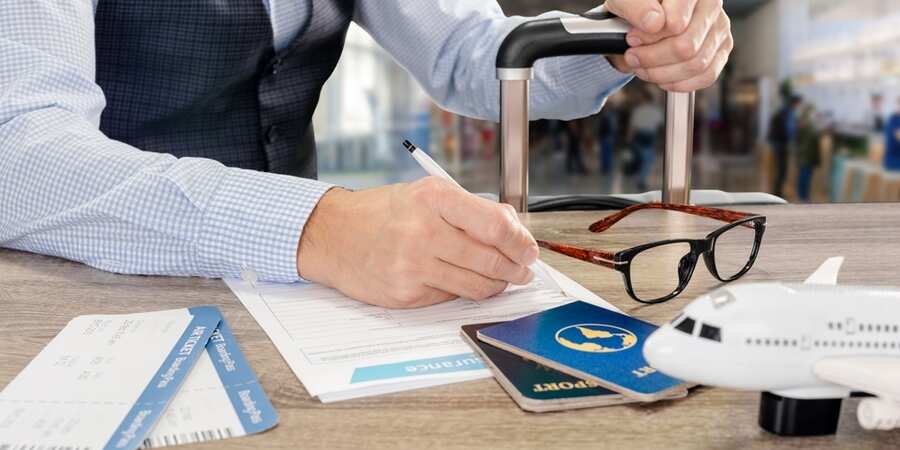
Switching to a managed business travel can transform corporate travel because of multiple benefits, such as:
1. Access to a unified portal
Business travel empowers employees, travel managers, and finance teams with round-the-clock access to a centralized platform through an app. Employees can book journeys, receive updates, and access emergency services while on the go. The platform enables expense reporting and helps the accounts department track real-time travel spending.
2. Travel policy adoption
This type of business travel enables companies to create and implement travel policies effectively. A corporate travel policy is crucial for controlling travel expenditure and streamlining the travel booking process for better productivity.
3. Professional travel management
Travel managers can leverage the vast domain experience of Travel Management Companies (TMCs) by adopting a managed business travel program. TMCs enable companies access to local and regional LCCs and leading Global Distribution Systems to achieve cost-effective travel bookings.
4. Higher efficiency
This kind of business travel saves time by improving employee efficiency and productivity as the travel management platform takes care of all travel booking activities. It ensures adherence to travel guidelines of the company, mitigating non-compliance to travel policy.
5. Duty of Care
Companies can effectively meet Duty of Care obligations as Travel Management programs like Paxes provide availability of round-the-clock emergency help, and frequent updates about threats.
Drawbacks of managed business travel
The option of managed business travel has a few disadvantages. These are:
1. The reluctance of employees
Resistance to rules is a natural tendency of most employees who may not adhere to the travel guidelines in a business travel environment. A steep learning curve may impact the adoption of an online travel management platform.
2. Cost of managed travel
Managed business travel involves multiple touch points and stake holders. Hence, companies may find this kind of business travel solution to be a costly proposition.
How does unmanaged business travel differ from managed travel?
Managed business travel is a centralized approach whereas unmanaged business travel is a decentralized approach where employees have the freedom to manage the expenses and itineraries. Unmanaged travel doesn’t have any travel policy to follow, however, managed travel programs have to strictly comply with the policy.
Key responsibilities of travelers in unmanaged business travel
In unmanaged business travel, the traveler is responsible for booking and planning the trip, travel policy adherence, expense management, reporting, travel documentation, and communications.
Unmanaged business travel results in bottlenecks, as employees need to wait for approvals or experience delays in expense reimbursements. Allowing employees to plan business travel can derail the travel policy. Using travel management solutions like Paxes helps companies adopt managed business travel with no hassles. The user-friendly software platform allows using an app to enhance employee satisfaction and compliance with corporate travel policy.
Suggested Read: What Are The Different Types Of Corporate Travel
Unmanaged Business Travel FAQs
How does a managed business travel improve employee productivity.
Employees must invest a long time in booking travel in unmanaged business travel. It diverts their focus from business activities during business travel, impacting productivity. Managed business travel brings relief to employees as Travel Management Companies handle all travel booking activities.
When should a company adopt unmanaged business travel?
Unmanaged business travel is helpful if only a couple of employees need to undertake business travel.
What is the role of a Travel Management Company?
A Travel Management Company or a TMC looks after the entire travel management of a company to save travel expenditure and time.
Why is travel management essential?
Travel management streamlines corporate travel by improving compliance with travel policy. It saves travel costs by optimizing travel requirements and improving the business travel output.
How is a Travel Management Company different from a travel agency?
Travel Management Company leverages advanced technology to track travel and implement business travel by adhering to travel policy. The TMC manages the entire business travel process, from itinerary preparation to expense reimbursement. A travel agency looks after travel booking to facilitate business travel.
How can I book flights for unmanaged business travel?
Travelers can book flights through online booking systems or the website of airlines.
How do I find and book accommodation for unmanaged business travel?
There are multiple consumer platforms where the traveler can find a variety of accommodation options. They can choose the most suitable one for themselves.
What are some safety tips for travelers in unmanaged business travel?
The traveler must be aware of all the scams and frauds while booking his travel services, They must make their bookings through a reliable source to avoid any inconvenience during the travel. They must be well-versed with the destination’s travel system and culture to quickly adapt there.
Pratyush is a traveling enthusiast who always looks for innovations in business travel management. He has 5 years of experience writing content on corporate travel management and working closely with expert business travel facilitators.
Related Posts

Corporate Travel
An easy guide to maintain a healthy business travel diet.
Traveling for business involves a rigid schedule with stressful meetings and long flying hours. With such a demanding itinerary, it is very easy to overlook a healthy exercising regime and eating habits. The effects of Read more…

Affordable Flight Tickets: Unlocking Saving Potential Of Bookings
For businesses that frequently send employees on business trips, finding affordable corporate flight tickets is a top priority. Cost-efficient travel options can significantly impact the bottom line while ensuring that your team arrives at their Read more…

Types Of Flight Emergencies: Navigating Challenges In the Sky
In a world where travel has become an indispensable part of our lives, emergencies can occasionally arise at the most unexpected times. In-flight emergencies are hard to tackle with little help from the ground. The Read more…
Let's get started!

Thanks for submitting your details.
We'll get back to you shortly.

Businesses Ranker
- Brands and Companies
- Manufacturers & Producers
- Law & Legal
- Stocks & Trading
- Real Estate
- Free Business Listing
- GST Return Filing Service Delhi
- ITR Filing Service Delhi
- Pan Card Apply Service Delhi
- GST Registration Service Delhi
- Become an Author
Advantages and Disadvantages of Business Travel
In this fast-paced, interconnected world we live in, business travel has turned into a vital piece of the puzzle for countless companies. Thanks to globalization, businesses are reaching out and forging connections all over the globe, making those face-to-face encounters more precious than ever. But, as with most things in life, there’s always a flip side. As the speed of the corporate world picks up and travel schedules get more hectic, we can’t help but wonder: do the benefits of business travel outweigh the drawbacks?
So, buckle up and join us on this deep dive, as we explore the many facets of business travel, the good, the bad, and the in-between. From the priceless value of nurturing personal connections and embracing cross-cultural teamwork to the potential downsides of travel-induced stress and environmental impact, our goal is to present a well-rounded view of the ups and downs that come with this modern-day necessity.

Table of Contents
Advantages Of Business Travel
The word travel can excite some of you deep down, and of course, it is fun most of the time. And in the case of business travel, you are also doing something productive, which is ultimately a good thing. Therefore let’s talk about what are the possible advantages of business travel, and how these things can benefit you. Let’s find out.
1. Opportunities for Networking
Business trips bring along a world of opportunities to meet and connect with potential clients, partners, and colleagues. Events like conferences and trade shows become prime spots for networking with like-minded professionals. These connections can turn into valuable business relationships and even personal friendships, all of which contribute to your career and your company’s prosperity.
2. Broadening Business Horizons
Hitting the road for business purposes can be a fantastic way to extend your company’s reach into untapped markets. Discover new regions and forge relationships with possible customers or collaborators. By doing so, you can grow your customer base and boost your revenue. Plus, expanding your business adds diversity to your revenue streams, making your company more resilient and less susceptible to economic hiccups.
Also Read: How To Start Tour And Travel Business In India
3. Climbing the Career Ladder
Business travel can be a priceless experience for career growth. You’ll pick up new skills and viewpoints, as well as get a taste of different cultures and business practices. This exposure can help you advance in your career and achieve your professional aspirations. For instance, if international business piques your interest, traveling abroad can offer priceless insights into how business works across the globe.
4. Exposure to New Cultures and Perspectives
Business travel opens the door to experiencing new cultures and perspectives, broadening your horizons and leading to personal growth. You’ll learn about different customs, languages, and lifestyles. When you are exploring new cultures, you’ll automatically start looking at things with a new perspective, which can be really beneficial for you in your career path.
5. Tax Benefits
And did you know that business travel expenses can be tax-deductible, which can help trim the overall cost of your trip? Well, that’s another perk of business travel. All your expenses related to transportation, meals, stay, and other business-related costs can also be tax-deductible. And that is only to encourage people to travel for business purposes, without putting too much burden on one’s wallet. However, we can’t deny the fact that business travel in itself is an expensive thing.
Also read: Travel Insurance Advantages and Disadvantages
Disadvantages Of Business Travel
Before you go ahead and book your next flight, you may wanna consider some of the downsides of business travel. As always, there are some potential downsides here as well. Let’s see whether they apply to you or not.
1. Time Away From Loved Ones
Perhaps one of the biggest bummers about business travel is the time you spend away from your loved ones. This can be super tough, especially if you’ve got young kids waiting back home. Striking a work-life balance can be quite a juggling act. And even if you’re flying solo, being away for extended periods can make you feel lonely. To keep those connections strong, make sure you chat regularly with your loved ones via phone or video calls.
2. Physical And Mental Exhaustion
Let’s face it, business travel can wear you out, both physically and mentally. Whether it’s jet lag, sleep disruptions, or just plain long hours, you might feel like you’re running on empty. And it’s hard to stay focused and productive when you’re drained. To keep your energy up, remember to hydrate, eat right, and refresh your mind whenever you get time for that.
3. Increased Stress
Business trips can crank up stress levels, especially when you’re rushing to important meetings or scrambling to meet deadlines. The pressure to deliver can be intense, and having your routine thrown off doesn’t help. To keep your mind cool, try to keep things in perspective, prioritize tasks, and take breaks when you need to.
4. Dodging Health Hazards
Travel can expose you to a whole bunch of health risks, from illnesses to accidents and other safety concerns. This can be extra worrisome if you’re headed to places with sketchy healthcare or unfamiliar surroundings. To stay on the safe side, make sure to get vaccinated, practice good hygiene, and research potential health risks at your destination.
5. Financial Burden
Let’s not forget that business travel can cost a pretty penny. With expenses like transportation, accommodations, meals, and more, the bills can add up fast. And if you’re a frequent traveler, your wallet could really take a hit. To keep those costs in check, be smart about budgeting, book early for the best rates, and consider alternative options for lodging and transport.
All in all, venturing into the world of business travel can be a blend of ups and downs. Sure, it’s jam-packed with countless chances to broaden your network, expand your perspective, climb the career ladder, soak up new cultures, and even snag some tax perks. But, let’s not sugarcoat it, you’ll also be juggling time apart from family, battling fatigue, coping with stress, dodging health risks, and dealing with a tight wallet. However, finding the sweet spot between these aspects can help you seize the amazing potential of business travel while keeping the downsides in check, turning it into a fruitful and exhilarating journey.
LEAVE A RESPONSE Cancel reply
You must be logged in to post a comment.
Sumit Yadav
You might also like.
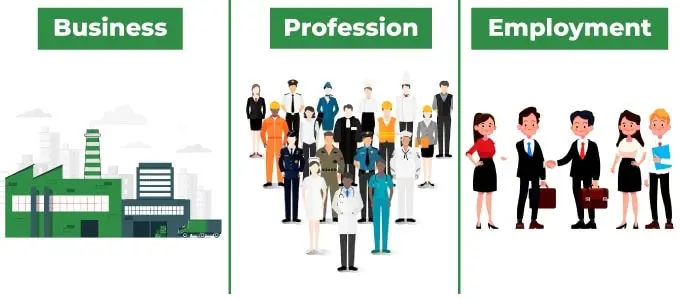
Difference Between Business, Profession & Employment

Top 10 Best Gym Franchises in India
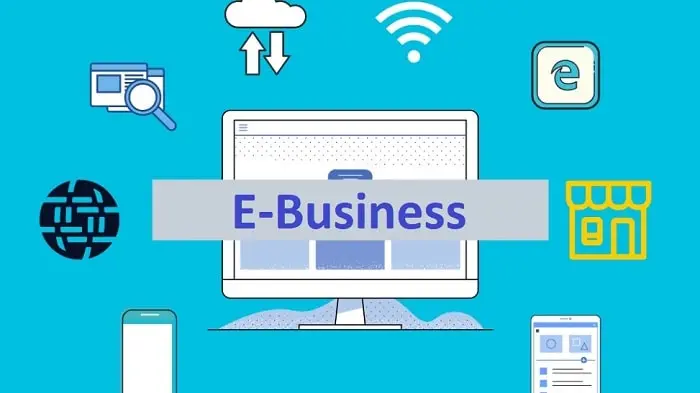
E-Business Advantages and Disadvantages

How To Start Saree Business In India
Latest articles.

3 Tips to Plan a Destination Wedding on a Budget

Beyond the Adrenaline Rush: Exploring the Secret to Accident-Free Driving

Analyzing Trends: The Most Common Causes of Car Accidents in Atlanta

Investing in Your Future: The Best Properties to Buy in Dubai

Canadian Bullion Dealer’s Advice: Should You Invest in Gold Bars or Coins

Monthly Investment Plan: A Constructive Approach to Financial Planning

Online Casino No Deposit Bonus Keep What You Win

Navigating the Digital Transformation: How Software Solutions Are Reshaping Contemporary Business Practices

Tips for Choosing the Ideal Gift Cards for Any Event

Cash-for-Gold Services: 5 Essential Factors to Consider for the Best Provider
- Terms of Use
- Privacy Policy

What are the advantages and disadvantages of business travel?
Introduction.
We already know that companies or organisations mainly provide business travel. Business travel primarily aims to meet new people and crack deals to enhance the business’s growth. This is also beneficial for developing a relationship with the stakeholders. Business travel also helps to understand the business culture of different places.
This blog will discuss the advantages and disadvantages of business travel . So, this blog will be appropriate if you work in an organisation and want to travel for business purposes.
There are a few advantages of business travel which are discussed below.
Advantages of business travel
Getting to know new people .
Meeting new people is a significant advantage of business travel because it helps to understand the business-related perspective of the people. Because of this, people can also develop creativity in business organisations. Apart from this, it allows an understanding of the place’s culture. The face-to-face interaction will also improve to enhance the business network.
Build a confidence
In order to build confidence, you need to come out of your comfort zone. This is beneficial for developing communication skills. Because of this, you can easily interact with people. When your confidence level increases, we can solve your problems. Moreover, it will also be beneficial for enhancing problem-solving problem-solving skills.
To get the Experience of new places
This is another advantage of business travel. It helps to adapt to new things from the place, such as the culture of the business. The various types of places follow various types of business cultures , which can help the organization reach the desired goals. This is also good for breaking the monotony of the work because meeting with new people and exploring new places will be helpful to keep your mind fresh.
Find the new places
Finding a new place and exploring the places is the central part of business travel. It helps the employees to develop the knowledge to do business operations. This also gives an impact on the productivity and growth of the organization.
The disadvantage of business travel
Travel expenses .
Business travels are expensive because companies spend a lot of money on it. Not only the plane ticket, but companies also provided hotel costs, transportation costs, and food services to their employees. So it is evident that business travel is dependent on the tremendous amount of money of the organization. Sometimes it creates difficulty for the small startup business organization.
Lack of productivity
Traveling sometimes needs help managing the time for meetings. Because of this, it has an impact on the growth of the organisation. Undeniably, those who must travel for work occasionally experience a loss in productivity due to issues with the WiFi or running out of battery.
It harms health and fitness
This is the principal disadvantage of business travel, and frequent traveling can be responsible for creating significant health problems for employees. Because Of this, employees can’t concentrate on their work, which affects the organization’s productivity. Additionally, consuming unhealthy food constantly can create health problems for employees.
Traveling Can Be Anxious
Traveling can be stressful for you or your staff members due to missed connections, traffic, and other travel-related concerns. When you or they are under stress, it can make the journey seem ineffective. The trip’s success will be impacted by this demotivating feeling, which could also harm the organization’s growth.
Conclusion
This blog concludes with the advantages and disadvantages of business travel. The primary purpose of business travel is to develop new ideas about business operations. On the other hand, the disadvantage of business travel is that it enhances the organization’s expense. So it may affect the growth of the organization.
Leave a Comment Cancel Reply
Your email address will not be published. Required fields are marked *
Save my name, email, and website in this browser for the next time I comment.
Book Now! The Best Budget Luxurious Suits
Book your next trip today and get 10% off.
Book Your Royal Suit Now
₹2500 + taxes, book your royal premium suit now, ₹3,800 + taxes.
Best Way to Plan Your Travel Trip
Advantages and Disadvantages of Business Travel
Generally, business travel is an incredible experience that most people only dream of. Some people opt to travel for work on their own while others also do so for corporate multinationals, attending exhibitions, wooing investors, and closing deals among other businesses.
Nevertheless, people have different opinions regarding the merits and shortcomings of business travel. Check out the following advantages and disadvantages of business travel.
Advantages
Meeting New People
Regardless of where you travel for work, there are always opportunities for meeting new people, sharing career ideas, making friends, and learning about different cultures. Those activities will make your trips quite fun with so many life lessons to learn.
Traveling the World for Free
The fact that you are traveling for work means you get to earn while touring too. Most business trips are often all-expenses-paid vacations whereby only your attendance is required. The covered expenses usually include transportation, accommodation, and food. Some corporate executives will also get fully-paid entertainment to make the trips memorable.
Disadvantages
Fatigue
Due to the jetlags and long working hours, there are chances frequent business trips could easily wear you out. It is a common norm for many business travelers to work late and sleep on the plane. It might take some time before you get used to life on the road.
Unhealthy Living
Whenever you are constantly traveling for work, eating proper diets is a common challenge. Apart from eating on-the-go most of the time, it may not be easy to get good meals at some destinations. As a result, you could easily find yourself starving.
As discussed above, business travel has unique benefits and demerits that you should be aware of. However, it is also clear that the rewards of traveling for work outweigh the downsides. Business travel is all about exploring and, you can easily learn how to adjust to avoid the risks of fatigue and unhealthy living with time.
Related posts:
- 3 Reasons to Board a Plane and Start Traveling More
- How Traveling will Make You Happier
- Traveling for the Young and Broke
- Useful Tips for Planning Weekend Travel

5 Main Benefits of Business Travel

For some employees, business travel may just seem like a chore, while for others, it may seem like an opportunity to explore. Here, it all comes down to perspective, and when business travel is done the right way, the benefits are massively high.

Even though there are many benefits associated with business travel, in this article, we will show you the five main ones associated with business travel.
Let’s dive right in!
5 main benefits of business travel
Here are our five main benefits for business travel:
1. Builds confidence
A huge benefit business travel will give you is the ability to get out of your comfort zone and build confidence while traveling. We all have an issue of staying in our comfort zone, which also impacts our professional and personal lives, but we need to push past our comfort zone and welcome new experiences.
Going to the office every day is just a boring daily routine, and isn’t something that challenges us since you have to repeat the same tasks daily. And guess what? Doing the same things every single day drops our confidence, which will later impact how we feel in our professional and personal lives.
Travel builds your confidence by making you adapt to new environments and gives you new challenges you have to overcome. That is just how our brain works, when it gets exposed to new things, it’ll feel good about it. Closing a deal, building a new business relationship will provide you with the vast confidence boost you are looking for.
2. You get to enjoy new experiences
Especially if you love to see new places or try new foods when you are traveling, business travel is your chance to enjoy the moment. Or maybe you are even someone who loves to visit historical objects, then this is your chance. The most important experience of traveling is to enjoy the experience itself and not think about what can go wrong.
Even when you are traveling for business purposes, we know time might be tight, but of course, you will have some free time to check what is around. Discovering something new is just another experience for you, and when you get used to it, it means you will get better at being flexible to adapt to new environments.
3. Allows you to have face-to-face meetings
If you think about it, even in our personal life, we can’t enhance our friendships, relationships by communicating remotely, it just doesn’t work. Real life interactions are different, allow you to express yourself better and even find out more about the person you are talking to through facial expressions and even the way they communicate with their body.
In short, face-to-face meetings are essential if you want to establish a more successful business relationship and allow it to be longer-lasting. Otherwise, virtual business relationships are limited and don’t have the same feeling you would have in real life.
4. Ability to meet new people
Relationships are essential for humans and the success of their lifelong experiences. It isn’t easy to establish them whenever you are in the office meeting the same people every day. Traveling gives you the opportunity to meet someone new, maybe they might be a new close friend, a future employer, or even a person that may help you with something else.
Life is full of surprises so you can’t really predict what is going to happen the next day and one thing may lead to another. Meeting new people from another country may even make things easier for your personal life, just as much as your business one.
Even if you go on a personal trip to a country you have traveled to with your company, new contacts will help orient you with things you may face trouble with. Now, you understand how helpful it can actually be.
5. Helps avoid employee burnout
Business traveling helps solve this issue, as you are going to new places, it helps you feel that your life is experiencing changes.
Is business travel meaningful at a workplace?
For every business that is included with traveling, it directly does affect how employees feel about their position at the workplace. When you and your team are traveling to different places around the world, it can even affect your team’s relationship and how they think about their job.
Nobody ever said you only have to work together at the office or during work hours, but being together outside the office is vital too! The sky is the limit, so it is essential you break those limits and seek to find fulfillment from every business travel experience you get to have.
Wrapping it up
Well, that’s about it for this article. Hopefully, now you see how beneficial business traveling can actually be for you and your employees. Remember, continuously doing the same things over and over can get exhausting. In short, you don’t want to be that grumpy person who is tired of work and feels like there isn’t anything better to do, so this is your chance to help employees and even yourself avoid burnout.
This article goes into an in-depth review of the significant benefits that come with business traveling. Read through each of the five benefits we stated carefully and see how they relate to you and your business. Are you the same person, and do you feel the same way?
Otherwise, take this opportunity to enjoy the moment with your colleagues and even for your own personal experiences. After all, you and your colleagues will have a lot of stories to tell once you guys are done with corporate traveling!
Steve Todd, founder of Open Sourced Workplace and is a recognized thought leader in workplace strategy and the future of work. With a passion for work from anywhere, Steve has successfully implemented transformative strategies that enhance productivity and employee satisfaction. Through Open Sourced Workplace, he fosters collaboration among HR, facilities management, technology, and real estate professionals, providing valuable insights and resources. As a speaker and contributor to various publications, Steve remains dedicated to staying at the forefront of workplace innovation, helping organizations thrive in today's dynamic work environment.
Recent Posts
11 Smart Technologies for the Modern Digital Nomad
The rise of the digital nomad has driven a demand for smart technologies. From essential gadgets to innovative software solutions, the digital nomad lifestyle thrives on these revolutionary...
Remote Jobs at Synctera, Amentum, Goldbelt, Scantron, AOC SF
Remote Job opportunity at Yardi Systems, Inc.: Compliance Auditor Job Descriptions:Yardi Systems, Inc. – Compliance AuditorUse your strong prioritization skills to complete certification...
Carolyn Hax: Can one spouse tell another to stop traveling so much for work?

Adapted from an online discussion.
Hi, Carolyn: I’m writing this as I manage a level of exhaustion and frustration I haven’t felt in a while. (Yes, I’m already reaching out to a therapist because it’s scary.) What right do I have to tell my husband to travel less for work? He used to have a two-nights-every-other-week routine that we, as a family, managed fairly okay (tiring but okay). But now it has become a weekly routine of two to four nights a week where I am left alone with both kids, 7 and 10. I also have my own job — I own my business, flexible but SUPER stressful — after-school activities, etc.
When he travels, I can’t work out, which makes me SO happy; don’t have backup for anything, from taking a breather to being late, to socializing with my friends; the house becomes kind of unmanageable; and, yes, the kids and I miss him a lot. The whole vibe of the home is off.
I get it that all spouses in all marriages deal with it just fine, but it doesn’t make ME happy. At all. Everything about me worsens — food intake, insomnia, moodiness, stress, etc.
Do I have the right to tell him not to travel as much? Most of my friends (moms) in the same field don’t travel remotely as much. Heck, I’m in the same field, and I don’t work past 4:15 p.m., because someone needs to be home with the kids after school. Can one spouse say, “No, you don’t get to do that for your career”?
— Exhausted
Exhausted: “All spouses in all marriages” aren’t relevant.
Your marriage is: Why is it all tell-tell-“No, you don’t”? Did you (or he) skip the part where you started a conversation?: “I’m losing it here, the extra travel is overwhelming to me, so I would like us to talk seriously about other possibilities.”
About Carolyn Hax

If you haven’t said it that way yet, then do so right away. Inviting your partner into the solution is so much better, so much happier and more effective for the marriage, than saying, “Do this.”
If you already tried that and he didn’t take you seriously, then there’s your opening: “I said to you, very clearly, that I am not doing well with this arrangement, and you didn’t take me seriously. So now on top of feeling overwhelmed, I feel dismissed. Please take this seriously — it is starting to scare me how tired and frustrated I am, and since it is your home and family, too, you belong in the discussion about what needs to change.”
I don’t know how much of this is in your husband’s control, short of getting a new job — which is possible, too, but also a bigger ask with a longer lead time and a steeper learning curve, plus a bunch of other unknowns. So you might need an interim solution while you work toward lasting ones.
In fact, the interim solutions might add up to a more workable household: Hiring household help, delegating more weekend responsibilities to him, carpooling and setting dedicated workout times (because you’ve hired out/delegated/carpooled your way to more free time) in combination can be enough to restore some equilibrium. But it’s not happening if you don’t get it started together.
As always, if he resists even this conversation, then your stress has a marital source bigger than his travel schedule and probably belongs in a couples’ therapist’s office. But let’s hope it doesn’t come to that.
More from Carolyn Hax
From the archive:
Dad struggles with wedding toast to ‘selfish’ son
A DNA test and a long-kept family secret
Honey, I’d like you to meet bill, a lifelong acquaintance
A step-parent acknowledges a past betrayal
Unemployed spouse puts chores, hobbies above job search
Sign up for Carolyn’s email newsletter to get her column delivered to your inbox each morning.
Carolyn has a Q&A with readers on Fridays. Read the most recent live chat here . The next chat is May 3 at 12 p.m .
Resources for getting help. Frequently asked questions about the column. Chat glossary

- Share full article
Advertisement
Supported by
Automatic Refunds and No More Hidden Fees: D.O.T. Sets New Rules for Airlines
The Transportation Department issued new requirements on refunds when flights are canceled or delayed and on revealing “junk” fees before booking. Here’s what passengers can expect.

By Christine Chung
The Transportation Department on Wednesday announced new rules taking aim at two of the most difficult and annoying issues in air travel: obtaining refunds and encountering surprise fees late in the booking process.
“Passengers deserve to know upfront what costs they are facing and should get their money back when an airline owes them — without having to ask,” said U.S. Transportation Secretary Pete Buttigieg in a statement, adding that the changes would not only save passengers “time and money,” but also prevent headaches.
The department’s new rules, Mr. Buttigieg said, will hold airlines to clear and consistent standards when they cancel, delay or substantially change flights, and require automatic refunds to be issued within weeks. They will also require them to reveal all fees before a ticket is purchased.
Airlines for America , a trade group representing the country’s largest air carriers, said in a statement that its airlines “abide by and frequently exceed” D.O.T. consumer protection regulations.
Passenger advocates welcomed the new steps.
Tomasz Pawliszyn, the chief executive of AirHelp, a Berlin-based company that assists passengers with airline claims, called it a “massive step forward and huge improvement in consumer rights and protection” that brings the United States closer to global standards in passenger rights.
Here’s what we know about the D.O.T.’s new rules, which will begin to go into effect in October.
There’s now one definition for a “significant” delay.
Until now, airlines have been allowed to set their own definition for a “significant” delay and compensation has varied by carrier . Now, according to the D.O.T., there will be one standard: when departure or arrival is delayed by three hours for domestic flights and six hours for international flights.
Passengers will get prompt refunds for cancellations or significant changes for flights and delayed bags, for any reason.
When things go wrong, getting compensation from an airline has often required establishing a cumbersome paper trail or spending untold hours on the phone. Under the new rules, refunds will be automatic, without passengers having to request them. Refunds will be made in full, excepting the value of any transportation already used. Airlines and ticket agents must provide refunds in the original form of payment, whether by cash, credit card or airline miles. Refunds are due within seven days for credit card purchases and within 20 days for other payments.
Passengers with other flight disruptions, such as being downgraded to a lower service class, are also entitled to refunds.
The list of significant changes for which passengers can get their money back also includes: departure or arrival from an airport different from the one booked; connections at different airports or flights on planes that are less accessible to a person with a disability; an increase in the number of scheduled connections. Also, passengers who pay for services like Wi-Fi or seat selection that are then unavailable will be refunded any fees.
Airlines must give travel vouchers or credits to ticketed passengers unable to fly because of government restrictions or a doctor’s orders.
The vouchers or credits will be transferable and can be used for at least five years after the date they were issued.
Fees for checked baggage and modifying a reservation must be disclosed upfront.
Airlines and ticket agents are now required to display any extra fees for things like checking bags or seat selection clearly and individually before a ticket purchase. They will also need to outline the airline’s policies on baggage, cancellations and changing flights before a customer purchases a ticket.
The rules, which apply to all flights on domestic airlines and flights to and from the United States operated by foreign airlines, have varying start dates.
For example, automatic refunds must be instituted by the airlines within six months. But carriers have a year before they’re required to issue travel vouchers and credits for passengers advised by a medical professional not to fly.
Follow New York Times Travel on Instagram and sign up for our weekly Travel Dispatch newsletter to get expert tips on traveling smarter and inspiration for your next vacation. Dreaming up a future getaway or just armchair traveling? Check out our 52 Places to Go in 2024 .
Christine Chung is a Times reporter covering airlines and consumer travel. More about Christine Chung
Open Up Your World
Considering a trip, or just some armchair traveling here are some ideas..
52 Places: Why do we travel? For food, culture, adventure, natural beauty? Our 2024 list has all those elements, and more .
Mumbai: Spend 36 hours in this fast-changing Indian city by exploring ancient caves, catching a concert in a former textile mill and feasting on mangoes.
Kyoto: The Japanese city’s dry gardens offer spots for quiet contemplation in an increasingly overtouristed destination.
Iceland: The country markets itself as a destination to see the northern lights. But they can be elusive, as one writer recently found .
Texas: Canoeing the Rio Grande near Big Bend National Park can be magical. But as the river dries, it’s getting harder to find where a boat will actually float .
We've detected unusual activity from your computer network
To continue, please click the box below to let us know you're not a robot.
Why did this happen?
Please make sure your browser supports JavaScript and cookies and that you are not blocking them from loading. For more information you can review our Terms of Service and Cookie Policy .
For inquiries related to this message please contact our support team and provide the reference ID below.
I went on 2 of Royal Caribbean's largest and newest cruise ships. I enjoyed them, but they're not for everyone.
- I've sailed on Royal Caribbean's largest cruise ships , Wonder of the Seas and Icon of the Seas.
- Both megaships are jam-packed with people, amenities, and dining options.
- But if you want a quiet cruise to unique destinations, they might not be for you.

Before booking a vacation at sea, travelers should always research the best cruise line and ship for their needs.
If you're looking for a cheap and fast trip, try Margaritaville at Sea . Craving something more upscale? Consider Oceania Cruises.
But if you're looking for high-end sailing to unique destinations, I'd suggest avoiding Royal Caribbean's megaships .
Royal Caribbean has become synonymous with giant, family-friendly cruise ships
By 2028, Royal Caribbean wants one-third of its fleet to be megaships.
The latest addition, the 1,196-foot-long and 248,663-gross-ton Icon of the Seas, entered service in January, unseating Wonder of the Seas as the world's largest cruise liner.
Together, the two vessels can fit over 19,000 people — about 4,500 crew and 14,500 guests. Each ship has eight neighborhoods and there are 29 bars and 48 eateries between them.
I've attended complimentary sailings on both Wonder and Icon, the longest of which was three nights on the latter. From their colorful pool decks to the inescapable crowds, as a solo-adult traveler, I was equal parts entertained, overwhelmed, and overstimulated.
Related stories
But admittedly, I had fun. I do love a good waterslide; Wonder has three of them and Icon has six.
If you want to go on a cruise with your children — and if they, like me, love activities like rock climbing and mini golf — Royal Caribbean's megaships could be your best option.
Wonder and Icon are jam-packed with activity spaces like ice-skating rinks and ziplines.
But don't expect a peaceful retreat. The rowdy, bar-hopping adults and screaming children at the water playground aren't conducive to a relaxing vacation.
Megavessels might not be for you if you want a quiet cruise
If you want a relaxing vacation — maybe one that doesn't involve crowds of children — you shouldn't stay on either Royal Caribbean yacht.
There are many ways to have a luxury vacation on Icon of the Seas . But unless you want to pay for upcharged amenities at every turn, you'd be better off spending more upfront to reserve a premium cruise line — especially if you're interested in cruising for the destinations, not the ships.
After all, like most of Royal Caribbean's largest vessels, Icon and Wonder exclusively sail in the Caribbean.
Some destinations, such as French Polynesia, have set restrictions on which cruises can travel there amid concerns about pollution and overcrowding.
If stopping at these ports — or, really, anywhere outside the Caribbean — is at the top of your vacation wish list, you'll have to travel on a smaller Royal Caribbean ship or go with a different cruise line like Oceania , Silversea, and Regent Seven Seas.
You might not get a waterpark, but you'll get a quieter vacation to locations no megaship will likely be allowed to visit.
Watch: Inside the world's biggest cruise ship that just set sail
- Main content
- Skip to main content
- Keyboard shortcuts for audio player
Transportation Department cracks down on airline 'junk fees'
NPR's Leila Fadel talks with Transportation Secretary Pete Buttigieg about airlines and consumer air travel concerns.
LEILA FADEL, HOST:
Air travel can be a headache with flight cancellations and delays. Well, today, the Department of Transportation may be making that hassle a little more palatable. It's got a new rule out that would compensate travelers whose flights are canceled or are changed in a big way. Transportation Secretary Pete Buttigieg is with us now to talk about this. Good morning. Thanks for being on the program.
PETE BUTTIGIEG: Good morning. Thank you for having me.
FADEL: So what's the big change here?
BUTTIGIEG: So the big change here has to do with how and when you get your money back. It is already a matter of policy that you're entitled to a cash refund if your flight gets canceled. But right now, you have to know that. You have to go in. You have to fight for it. Now we are making that the default. An airline is required to promptly return payment to the same way that you paid. If it's miles, they give you your miles back. If it's a credit card, the money shows back on your credit card without you having to ask. We're also defining a significant delay. If your flight is delayed more than three hours domestically, more than six hours internationally...
FADEL: Yeah.
BUTTIGIEG: ...Same thing. If you have that delay, you wind up not taking that flight, you get your money back.
FADEL: Now, what prompted this rule change? Like you said, there are ways that customers have been able to get refunds in the past. But what prompted this?
BUTTIGIEG: Well, let me give you an example of something that would often happen. You would have a major delay or have your flight canceled. And the airline would say, we're going to offer you 5,000 miles, which might sound good. But that might be worth 50 bucks when you're actually entitled to 300. And by taking the miles, you give up your right to get the cash. This changes the default so that you get the cash unless you proactively say as a customer that you'll take some other form of compensation.
It also defines what a significant delay is. This is important because sometimes there'd be a scenario where your flight gets delayed by many hours. You book a different ticket on a different airline that's more expensive just to be able to get to where you're going.
BUTTIGIEG: But you never get your money back on the original flight.
FADEL: That's happened to me before.
BUTTIGIEG: You know, we hear so many of these stories because we've been taking in these complaints. Those have informed this rule. There's also a part of the rule that covers fee transparency, requiring airlines to make it very clear upfront what is included in the price of a ticket. Do you have to pay extra for bags? Will you have to pay a change fee if you try to cancel? It finally standardizes that level of transparency and clarifies that if you don't get what you paid for on one of those - like, you pay extra for baggage, but the baggage doesn't get there, or you pay for Wi-Fi, but the Wi-Fi doesn't work - it specifies for the first time that you're entitled to a refund on that as well.
FADEL: And what happens - well, first of all, how do airlines feel about this rule, these rules that are coming into play? And what happens if the airlines don't comply?
BUTTIGIEG: Look, airlines don't love these expansions of passenger rights, but I believe this is to the benefit of the sector as a whole because passengers will have more confidence that it's worth that ticket in the first place and just have more confidence in the aviation sector. So this is really about making sure that we create a better experience for passengers and a stronger aviation sector in the United States.
If an airline is not living up to this rule or any rule, you can let us know at our website, flightrights.gov. Not only is there information about what you can expect and demand, but also a way to file a complaint with us. If the airline's not refunding you promptly or doing what they ought to be doing, let us know. We'll follow up.
FADEL: Secretary of Transportation Pete Buttigieg, thank you for your time.
BUTTIGIEG: Thank you.
Copyright © 2024 NPR. All rights reserved. Visit our website terms of use and permissions pages at www.npr.org for further information.
NPR transcripts are created on a rush deadline by an NPR contractor. This text may not be in its final form and may be updated or revised in the future. Accuracy and availability may vary. The authoritative record of NPR’s programming is the audio record.
More From Forbes
The rising dark side of business travel ceos need to pay attention to.
- Share to Facebook
- Share to Twitter
- Share to Linkedin
It's time for companies to rethink their approach to business travel.
The business landscape has rapidly changed since the pandemic, with remote work and hybrid models becoming more prominent. Despite these workforce shifts, one aspect remains constant: business travel.
Business travel is back in full force following an expected dip during the pandemic. Corporate travel budgets are returning to pre-pandemic levels, and more companies are planning budget expansions. A Morgan Stanley survey revealed that over two-thirds of companies with under $1 billion in annual revenue anticipated increased travel budgets in the coming year.
The Impact of Frequently Flying
Frequent travel can significantly impact an individual's physical, emotional, and mental well-being . While companies prioritize conventional risk management areas, they often overlook the personal well-being of their travelers. From maintaining a healthy diet to proper sleep and various emotional components such as loneliness and separation, business travelers encounter numerous potential long-term health disruptions that non-traveling employees don't face.
Business travelers had higher claims than non-travelers for all health conditions across the board, along with a higher likelihood of stress-related disorders, as reported in the Harvard Business Review . Lastly, as shared in the Journal of Occupational and Environmental Medicine , frequent business travel adversely affects overall body composition, leading to risks of obesity and various other ailments if left unmanaged, such as heart disease and diabetes.
More and more companies are prioritizing workplace wellness due to factors such as obesity's $400 billion impact on companies . Corporate travel wellness programs are a necessary part of the equation as well. As you look to implement a modern and more robust travel wellness program, start with these two areas:
Huawei’s Pura 70 Ultra Beats iPhone With Pioneering New Feature
The juan soto trade has helped both the yankees and the san diego padres, four reportedly hurt after army horses run loose through central london, embrace bleisure travel.
When attracting and retaining the best people, more and more employees choose lifestyle over salary . It's not out of laziness. It's out of a desire for work-life integration. With this in mind, organizations can embrace employees' desires through bleisure . Organizations can promote work-life integration and rejuvenation by allowing employees to combine business trips with leisure activities.
Implementing flexible travel policies that enable team members to extend their trips on the back end is a way to improve employee satisfaction, productivity, and retention rates. Research shows that 89% of business travelers wanted to add a private holiday to their business trips. Traveling for work is energetically demanding, physically and mentally. A few extra days for leisure allow team members to process their trip, recharge, and return at total capacity.
Treat Your Employees Like Athletes
Just as professional athletes require careful management of their physical, emotional, and mental well-being , so do business travelers. Business travel is a stressor with a high burnout rate and decreased performance across the board. As you revamp your corporate wellness travel program, consider your approach to business travel as a sports team thinks of traveling to play an away game.
As you prepare the company playbook for healthier and more productive business traveling, consider the following:
- Providing support for handling jet lag
- Offering advice on maintaining healthy sleep and nutritional habits away from home
- Investing in business class and non-stop flights
- Providing hotels that have conducive amenities for optimal well-being
- Ensuring team members reside in centrally located hotels or apartment hotels
Business travel isn't going anywhere anytime soon, as the average business traveler takes roughly 6.8 trips per year, with business travel in the U.S. from domestic and international travelers also accounting for $387 billion in annual revenue, according to research shared over at Zippia . Incorporating travel wellness initiatives isn't merely an expense; it's an investment in employees' health and performance.
As organizations revamp their corporate travel programs, prioritizing their travelers' well-being is paramount. By implementing strategies to support travel wellness, companies can ensure that their employees remain healthy, engaged, and effective representatives of their companies.

- Editorial Standards
- Reprints & Permissions

IMAGES
VIDEO
COMMENTS
Research shows a strong correlation between the frequency of business travel and a wide range of physical and behavioral health risks. Compared to those who spent one to six nights a month away ...
To get you on the right track, here are the top benefits and downsides of business travel: Let's start with the pros: More Networking Opportunities. As aforementioned, networking opportunities are one of the biggest benefits that comes with international travel. Giving you and your employees the chance to attend a variety of trade shows and ...
Being willing to travel lets management know that you are an all-in kind of employee, willing to go the extra mile. It will start to let them view you as more than just a "doer.". You will be exposed to higher profile projects. By traveling you will likely get to visit and be involved in higher profile projects.
Surface area of risk factors in the time, people and distance covered during activity. The more time spent, people included and distance traveled during the trip, the more risks your travelers may ...
Sick and sad travelers. A new UK study has tried to lift the lid on the less alluring aspects of business travel and debunk the glamorous narrative that often accompanies it. Titled " A Darker ...
4. Prioritizing sleep. While it might be tempting to use all your downtime to tackle more tasks on your to-do list and work late into the night, getting sleep is essential for a successful work ...
Adding travel breaks to your schedule may change your routine and can make your life more entertaining. Cons of travelling for business. While travelling is great for business, some minor disadvantages may be encountered. It can be costly Unfortunately, travelling for business isn't cheap.
The hotel industry is expected to earn $59 billion less in business travel revenue this year compared to 2019, according to the American Hotel and Lobby Association. Airlines are expected to lose ...
Photo: iStock. The future of business travel could resemble a mullet—business in the front, party in the back. As the travel industry counts on a business-travel comeback this fall, executives ...
Business travel options- pros & cons. Here are a few of the different business travel options with the pros and cons for each so you can make a well-researched and informed decision on what is right for the employee, taking their specific requirements into account. Serviced apartments
Business Travel Disadvantages. Everyone's situation is different. If the employee has children or a close extended family, frequent business travel may pull them away from meaningful events. Occasional travel is reasonable for most people, but when large amounts of time are spent on the road, it can have a negative impact on morale and mental ...
A U.S. Travel Association report states that for every dollar invested in business travel, businesses benefit from an average of $9.50 in increased revenue and $2.90 in new profits. Traveling is ...
It seems that, finally, the light at the end of the pandemic tunnel is in sight—at least in some parts of the world. In 2020, total global business travel expenses contracted by 52 percent, while managed corporate-travel spending in the United States plummeted 71 percent, or $94 billion. Last year, when we reported on the impact of COVID-19 ...
The Hidden Benefits of Short-Term Business Travel. by. Andy Molinsky. and. Melissa Hahn. June 13, 2016. Much has been written about long-term expatriate assignments, but for many of us, a more ...
Most business travel challenges fall into a limited number of categories. Here's a look at 5 of the most common challenges, plus ideas for how you can overcome them. 1. Managing Risk. When it comes to business travel challenges, managing risk is at the top of our list. All organizations have a duty-of-care responsibility to their traveling ...
It has several disadvantages, such as: 1. Lack of data insights. Unmanaged business travel makes it hard for the finance department to gain crucial data insights like tracking travel expenses for particular travel routes, travel costs analysis for employees, and data consolidation. 2.
Zeitgeist. Airline travel has changed in the way society views it. The road warrior traveler, jetting around the planet for business, used to be an aspiration for many. Today, this is seen as a ...
So, buckle up and join us on this deep dive, as we explore the many facets of business travel, the good, the bad, and the in-between. From the priceless value of nurturing personal connections and embracing cross-cultural teamwork to the potential downsides of travel-induced stress and environmental impact, our goal is to present a well-rounded view of the ups and downs that come with this ...
Business travel primarily aims to meet new people and crack deals to enhance the business's growth. This is also beneficial for developing a relationship with the stakeholders. Business travel also helps to understand the business culture of different places. This blog will discuss the advantages and disadvantages of business travel. So, this ...
Disadvantages. Fatigue. Due to the jetlags and long working hours, there are chances frequent business trips could easily wear you out. It is a common norm for many business travelers to work late and sleep on the plane. It might take some time before you get used to life on the road. Unhealthy Living.
2.Expand Your Horizon. Another significant benefit of business travel is learning and honing new skills. You can quickly expand your horizon and skill set when meeting new people. Traveling for business will allow you to become self-made and a fast decisions maker. You will have the knowledge and expertise to deal with hostile situations.
Disadvantages of reduced business travel due to COVID-19 in the United States as of September 2022, by stakeholder [Graph], US Travel Association, & Tourism Economics, October 12, 2022. [Online].
Here are our five main benefits for business travel: 1. Builds confidence. A huge benefit business travel will give you is the ability to get out of your comfort zone and build confidence while traveling. We all have an issue of staying in our comfort zone, which also impacts our professional and personal lives, but we need to push past our ...
Most of my friends (moms) in the same field don't travel remotely as much. Heck, I'm in the same field, and I don't work past 4:15 p.m., because someone needs to be home with the kids after ...
April 24, 2024, 9:37 a.m. ET. The Transportation Department on Wednesday announced new rules taking aim at two of the most difficult and annoying issues in air travel: obtaining refunds and ...
April 24, 2024 at 3:00 AM PDT. Listen. 2:15. Airlines will now have to provide automatic refunds to travelers if their flights are canceled or significantly altered under new US Department of ...
The latest addition, the 1,196-foot-long and 248,663-gross-ton Icon of the Seas, set sail in January, unseating its less than two-year-old predecessor, Wonder of the Seas, as the world's largest ...
Business. Transportation Department cracks down on airline 'junk fees' April 24, 2024 6:04 AM ET. ... Air travel can be a headache with flight cancellations and delays. Well, today, the Department ...
Business travel is back in full force following an expected dip during the pandemic. Corporate travel budgets are returning to pre-pandemic levels, and more companies are planning budget ...
India is one of the world's top spacefaring nations. It is the first Asian country to reach Mars orbit, and the fourth on the planet to take a spacecraft to the moon, landing closer to the south ...